I can’t even begin to write about how blown away we were with the Uluwatu Temple in Bali.
There were just too many things that left us in awe of this sea temple. For starters, it gloriously stands on top of a steep 70-meter high cliff, overlooking the beautiful Indian ocean. Couple that glistening seascape with a spectacular view of the sunset, and an intense and engrossing dance performance with that same majestic sunset as its backdrop. And the monkeys… don’t forget the cheeky but adorable monkeys roaming around the temple!
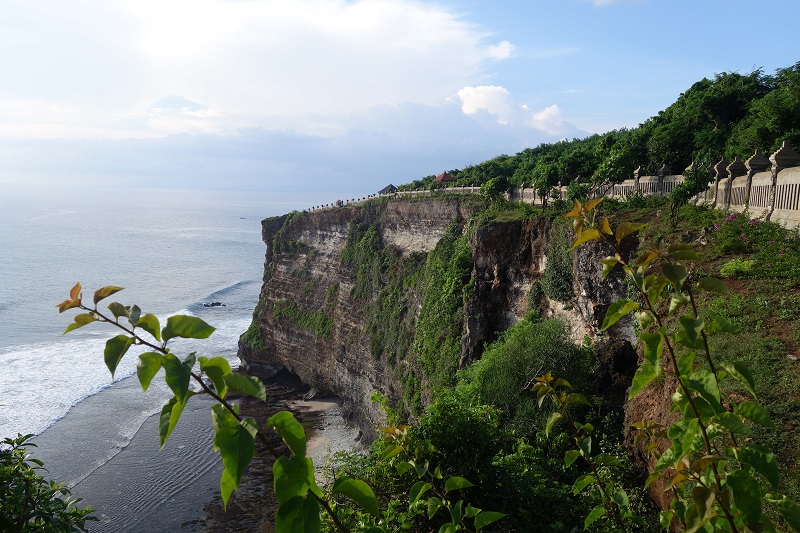
With that description alone, you can already tell that the Uluwatu Temple is a temple emanating character and uniqueness. Located in the Pecatu Village of Uluwatu, this is undoubtedly one of the most renowned and most visited temples in Bali because of its impressive views and excellent architecture.
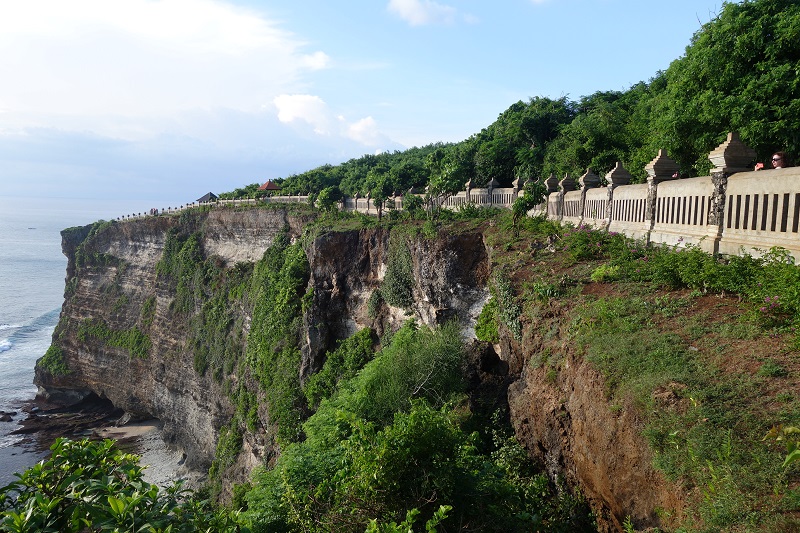
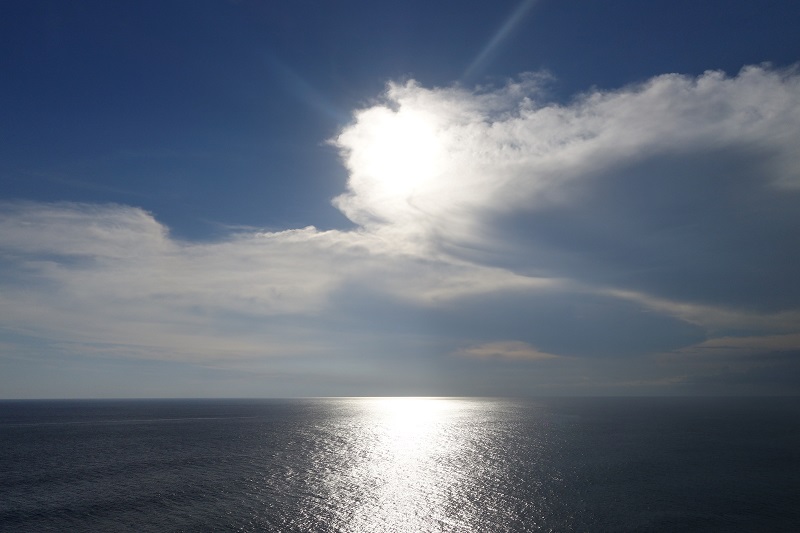
The name ‘Uluwatu’ is derived from two words: ulu means ‘head’ or ‘top’ while watu means ‘rock’ or ‘stone.’ It is definitely a fitting name for this incredible structure.
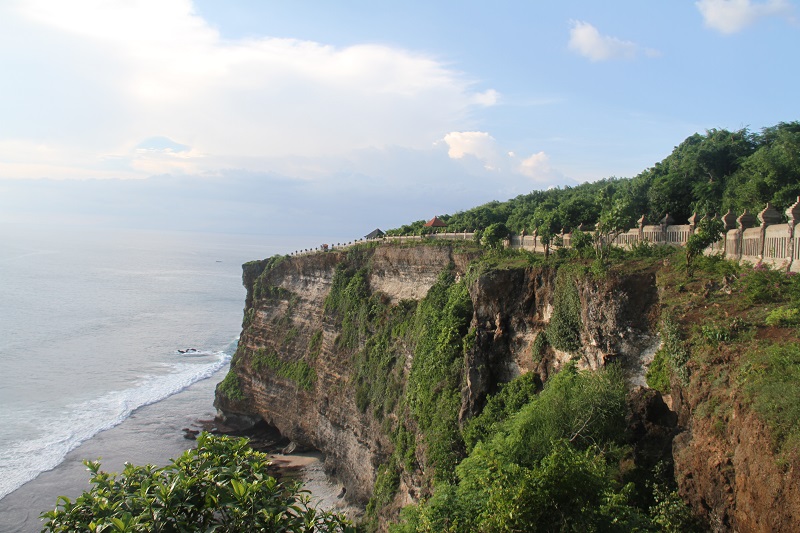
A brief history of the temple is written on the ticket given to visitors for them to fully appreciate what they see. Here is what is written on the ticket, with some minor edits by me:
The Uluwatu Temple is estimated to have been established by Mpu Kuturan during the reign of the king called Sri Haji Marakata who ruled from 944 Caka (Balinese year)/1032 AD – 948 Caka/1036 AD. He was one of the spiritual teachers of the kingdom and a bagavan (or “bhagavan,” a Lord, God, or spiritual leader) in the reign of King Dalem Waturenggong. The one who reached moksha (liberation from the cycle of death and rebirth) in this temple was Danghyang Nirartha. The temple was built as a glorification of his previous predecessor king, and… is a place of worship of a blessed place of Rudra, the storm god and embodiment of wildness and unpredictable danger, as well as the glorification of Danghyang Nirartha. Luhur Uluwatu Temple is one of the Sad Kahyangan (six sanctuaries of the world / six holiest places in Bali).
Rooted in so much spirituality, it is said that the Uluwatu Temple is dedicated to protect the island of Bali from evil spirits.
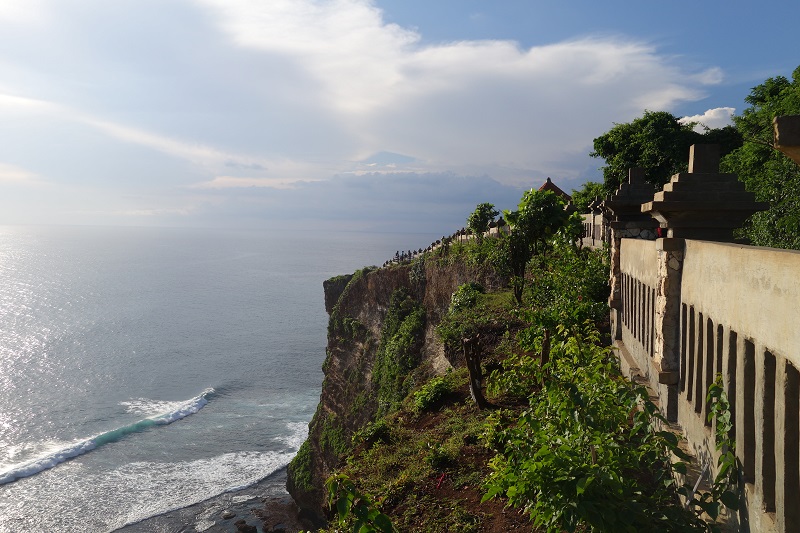
As with most temples in Bali, for modesty reasons, visitors are required to sport a sarong before entering the temple. Sarongs may be borrowed at the entrance for free.
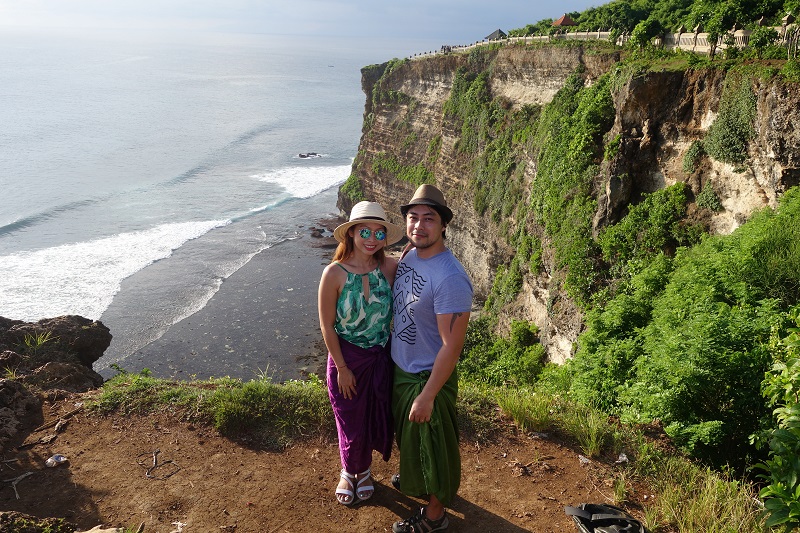
The photo above, as well, as this one below are some of my favorite photos of me and my husband Mike at the Uluwatu Temple. However, though it seems like we had this fantastic spot all to ourselves, the reality is that we were actually sharing it with dozens of other tourists (not in photo). We had to politely ask them to step aside so we could have the perfect photo, and in return, we had to get out of their way when it was their turn to take photos set against this beautiful background.
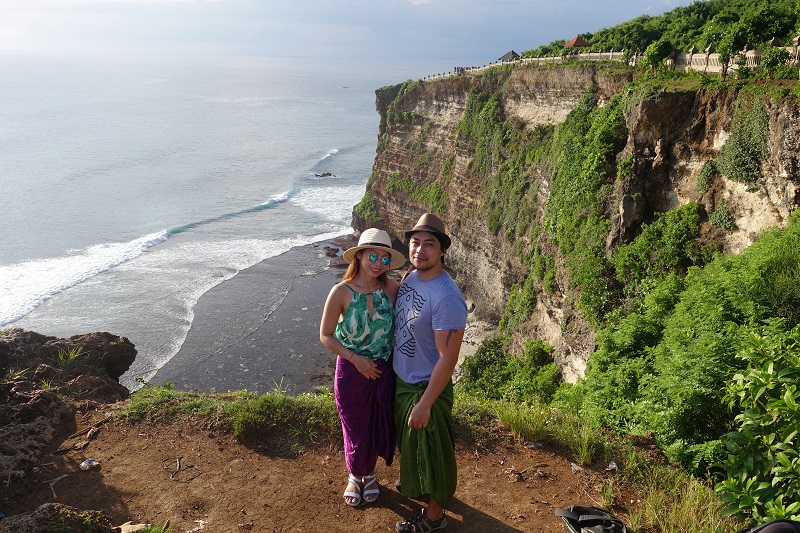
Just next to that cliff was another area that’s a great spot for a photo.
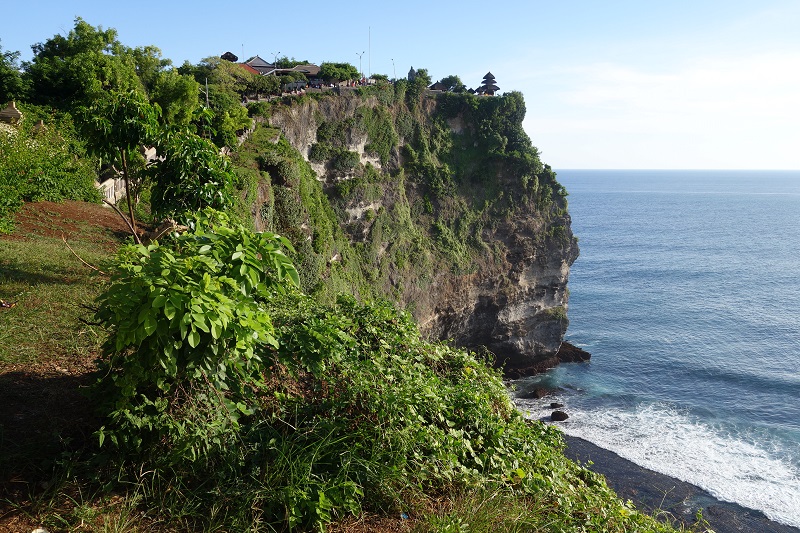
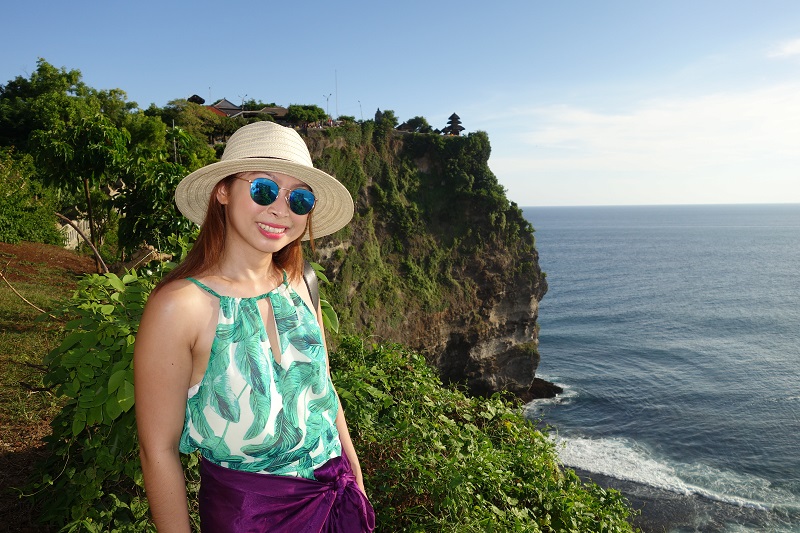


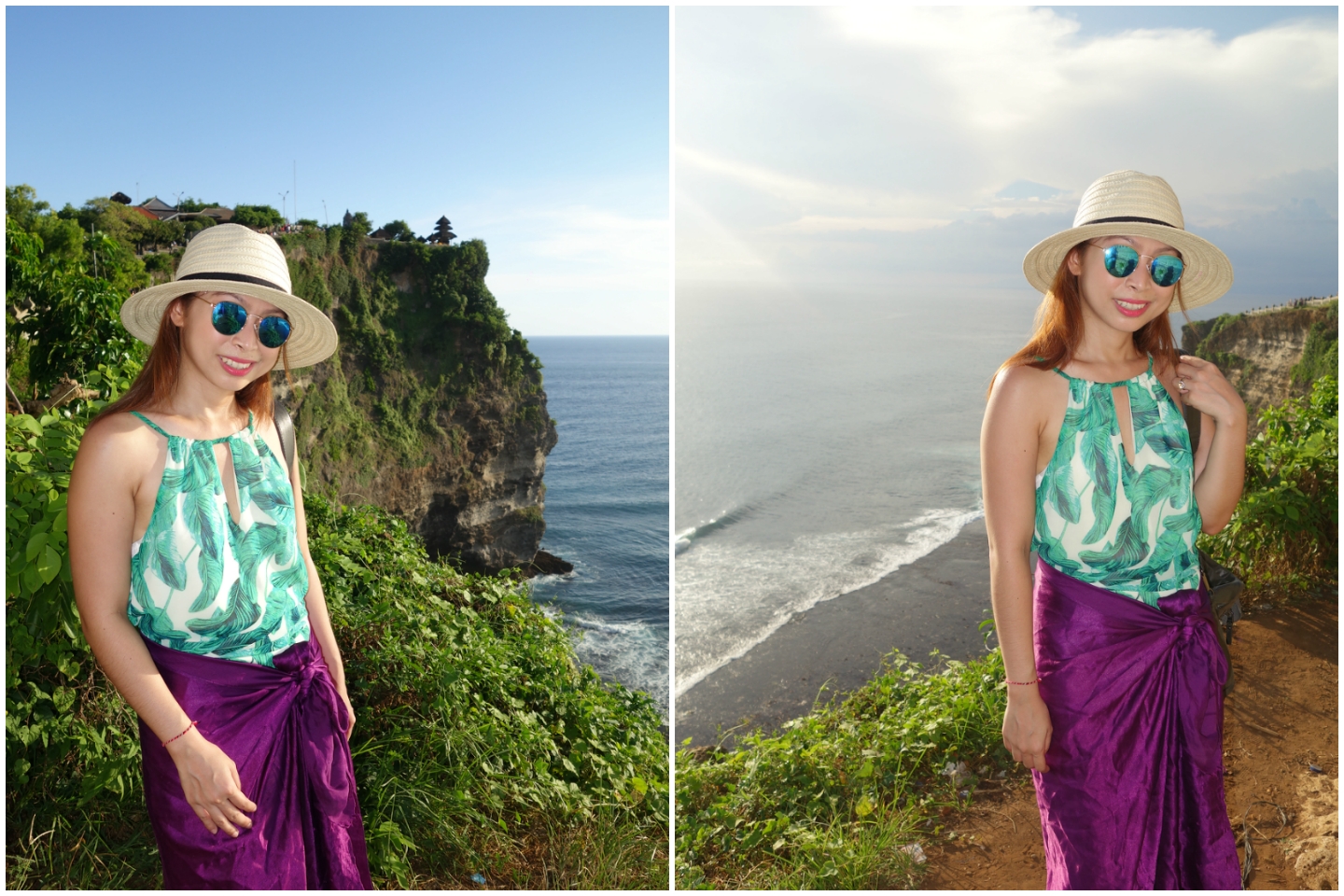

Our driver Made led us to a small forest at the front of the temple grounds which was occupied by monkeys — lots and lots of monkeys! These monkeys are believed to guard the temple from evil spirits. Here, Made cautioned us to hold on closely to our belongings because these monkeys are notorious for stealing anything they can get their hands on — sunglasses, hats, watches, cameras, phones… anything! Don’t underestimate these bad boys and girls. Before we even entered the temple, while we were paying for our tickets at the entrance, we already saw one monkey stealing someone’s sunnies! You can bribe them with food if you want your stuff back… but that only makes them smarter than you!
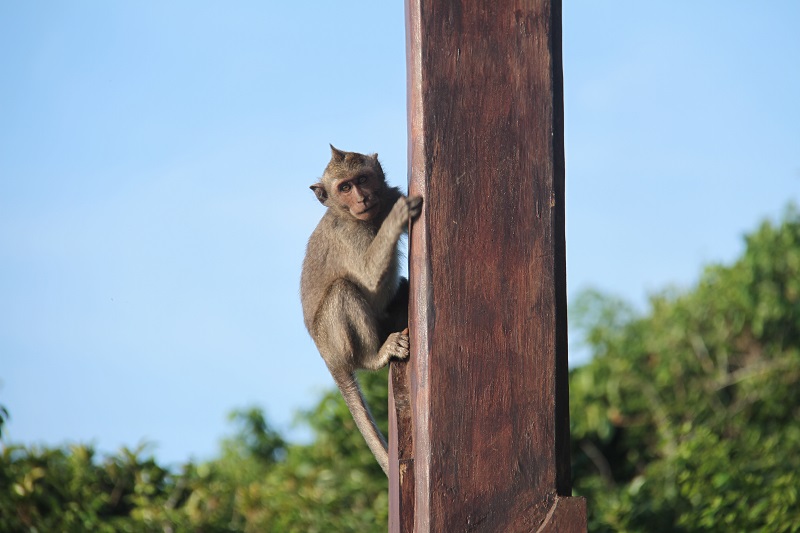
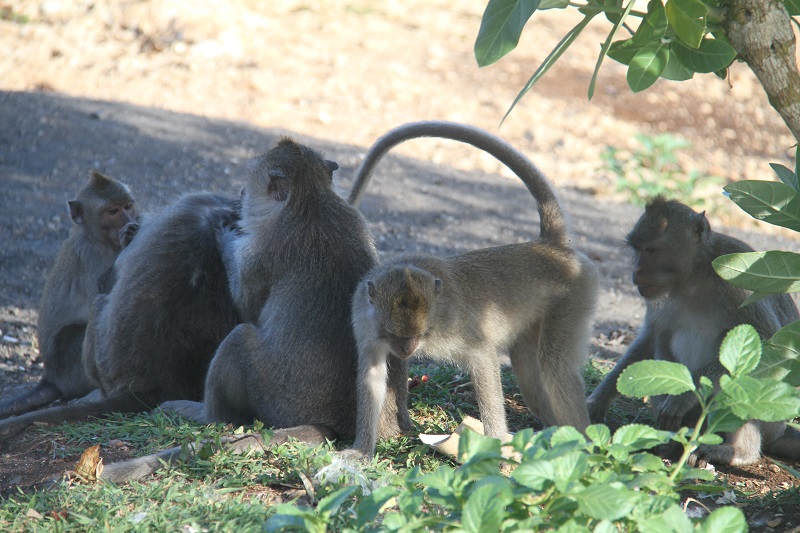
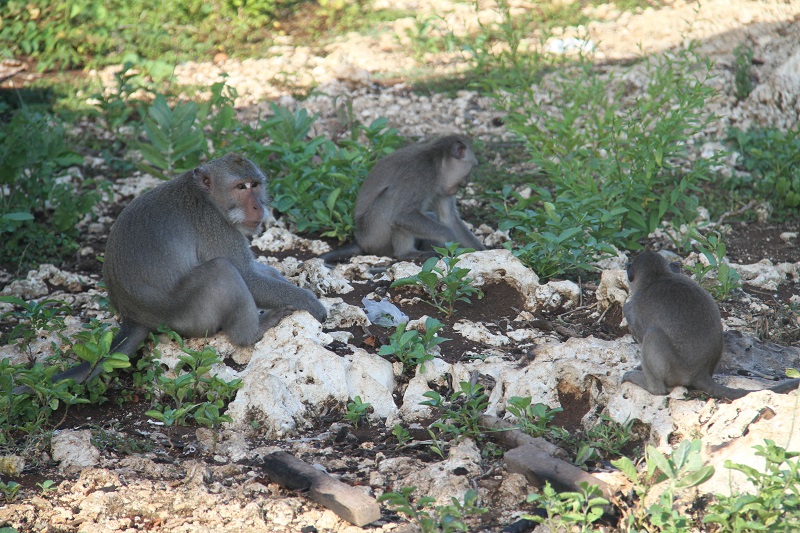
Meanwhile, while another couple was relishing the romantic view of the ocean, this naughty monkey ruined their lovey-dovey moment by jumping on the woman’s head! She flipped out and screamed her head off! The woman wasn’t hurt; she was just startled big time. The monkey was probably jealous because he didn’t have a love life.
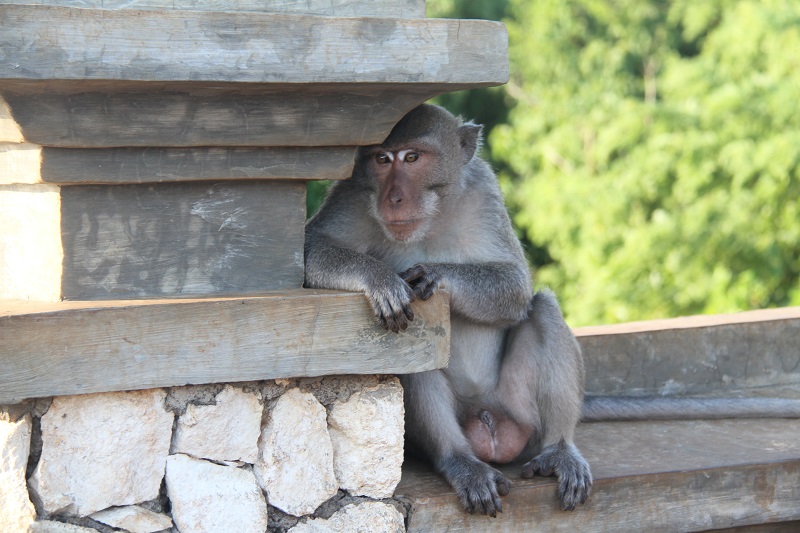
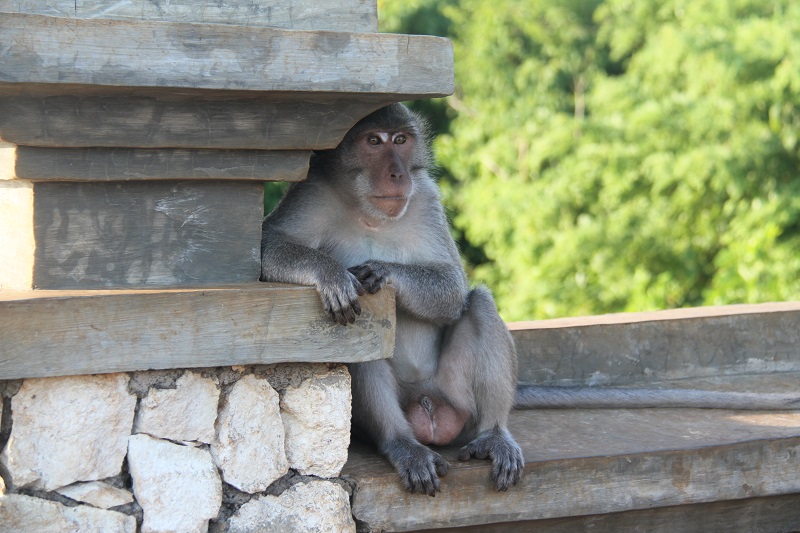
We were lucky enough to have witnessed the monkey’s “feeding time.” A man started repeatedly chanting “Ayu! Ayu!” and upon hearing his voice, suddenly, the monkeys presented themselves and followed the man for some treats.
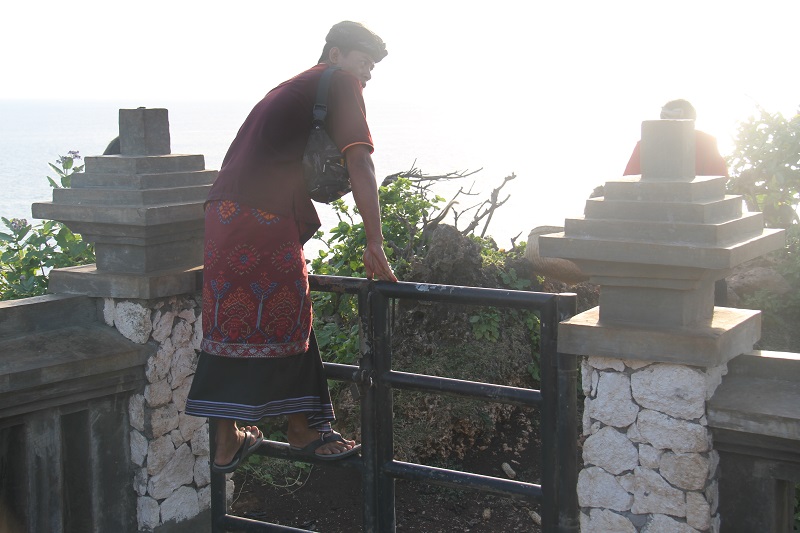
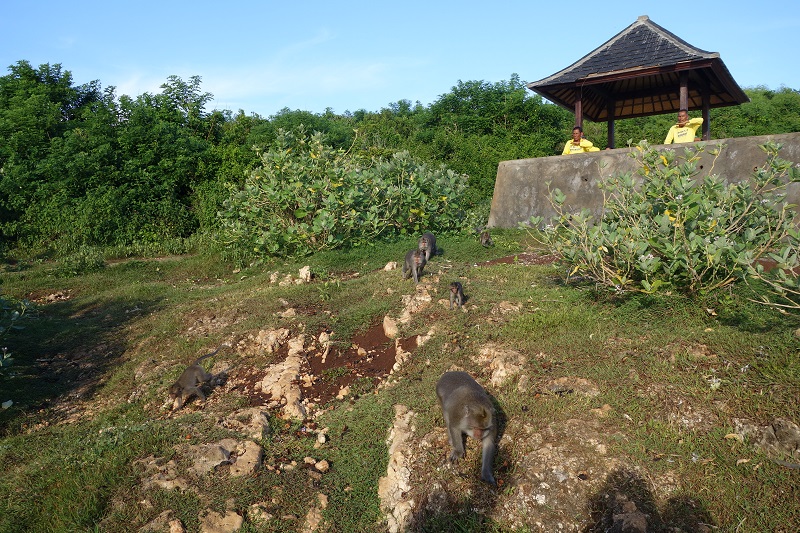
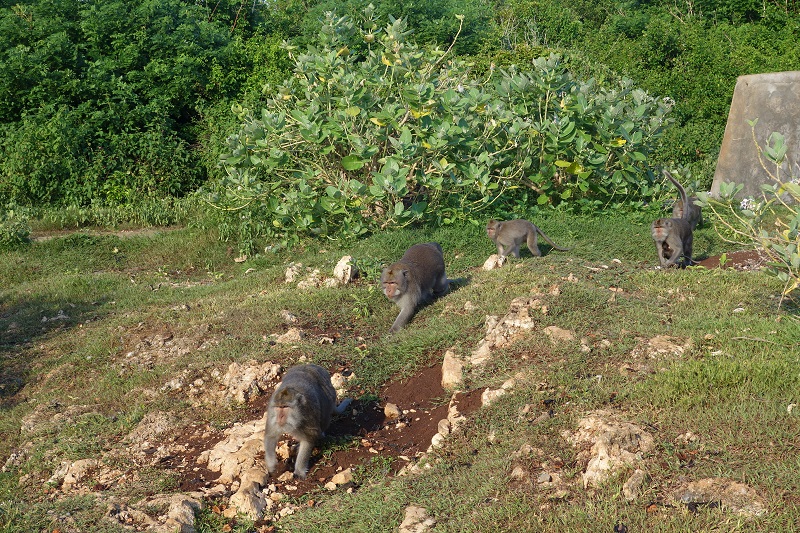
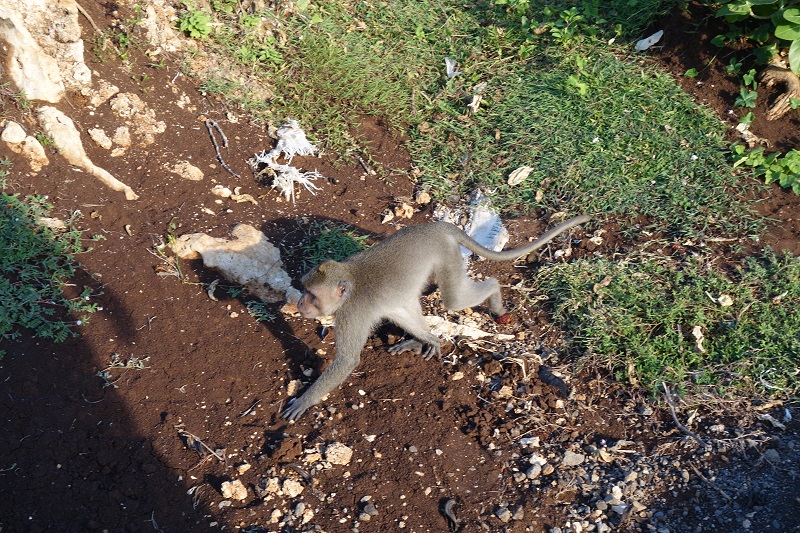
Here is a short video of the monkeys during feeding time at the Uluwatu Temple. Make sure you keep your eyes glued to your computer or phone screen at 1:42, or else you’ll miss the 5-second monkey quickie!
At the same forest where the monkeys were hanging out, we found six men who appeared to be praying while facing the ocean. They looked so focused and unperturbed despite all the monkeys and tourists around them.
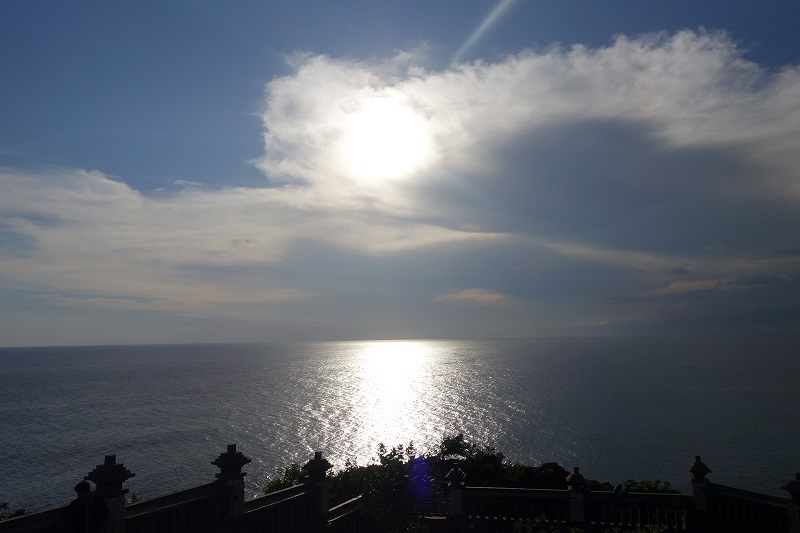
I would recommend going visiting this temple with a good driver-cum-tour guide. Aside from helping you retrieve your stolen items from monkeys (thank God we didn’t experience that!), a big, culturally and historically-rich, and magnificent temple such as the Uluwatu Temple is really best explored with a knowledgeable tour guide who can tell you interesting information about the structure.
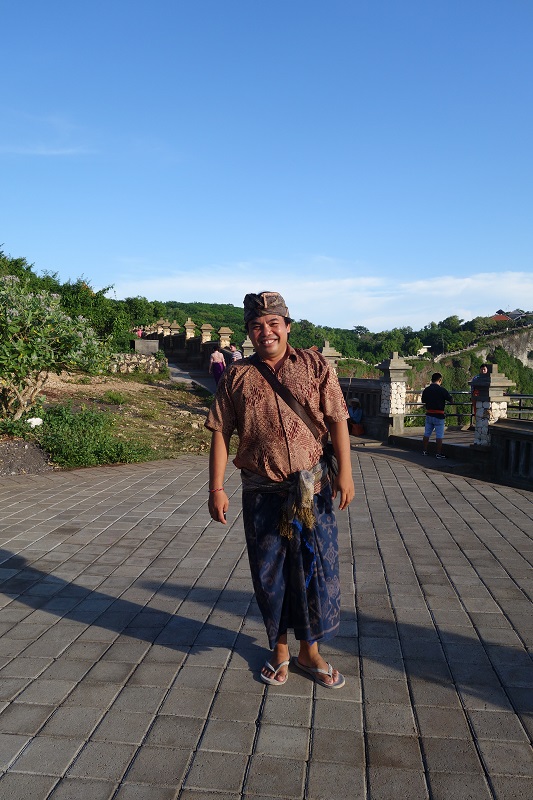
Another advantage of having a tour guide? You’ll have someone to take beautiful photos of you! Selfies are okay sometimes, but for such a picturesque place as this, a selfie just won’t cut it.
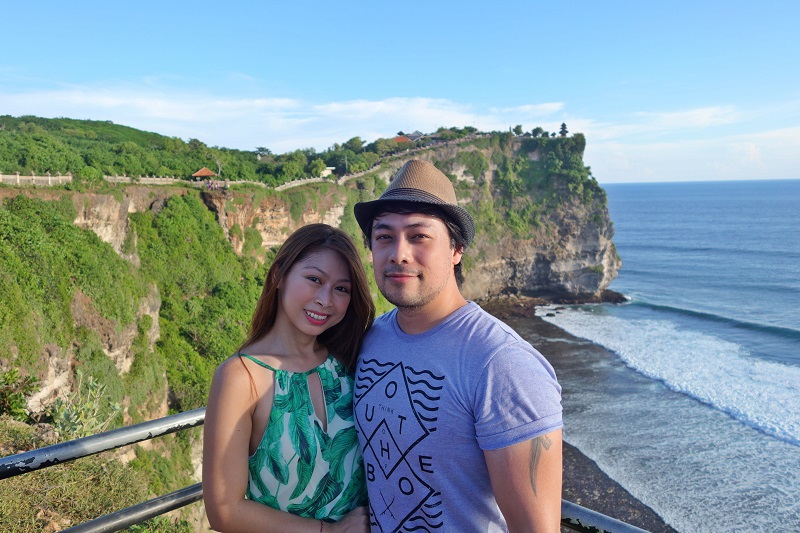
Since I mentioned that this is a picturesque place, I will say no more (for now) and just let the photos do the talking.
Finally, it was time to go up to the actual temple. There is a winding walkway going up to the temple lined by a concrete wall. The path going to the temple is a long one, though there are plenty to see while on the way there.
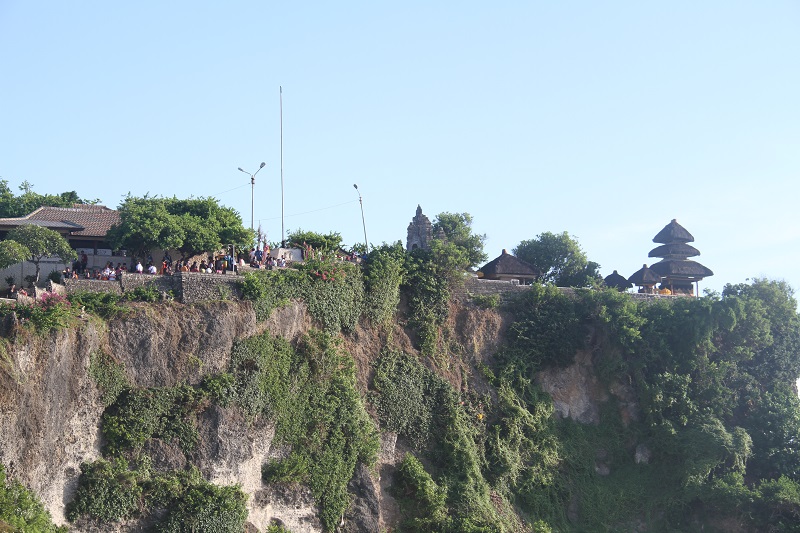
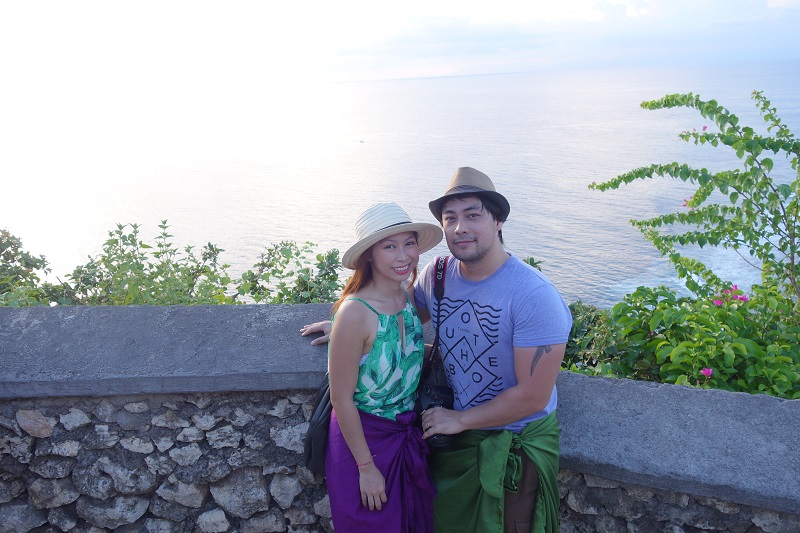
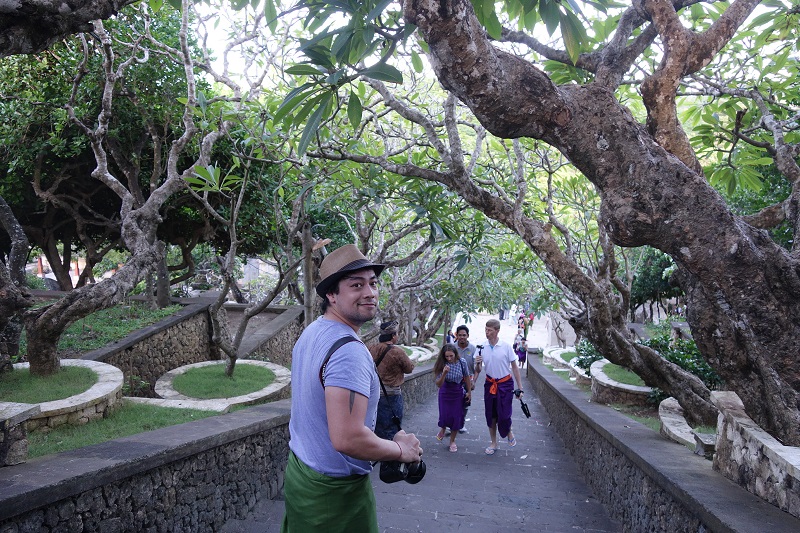
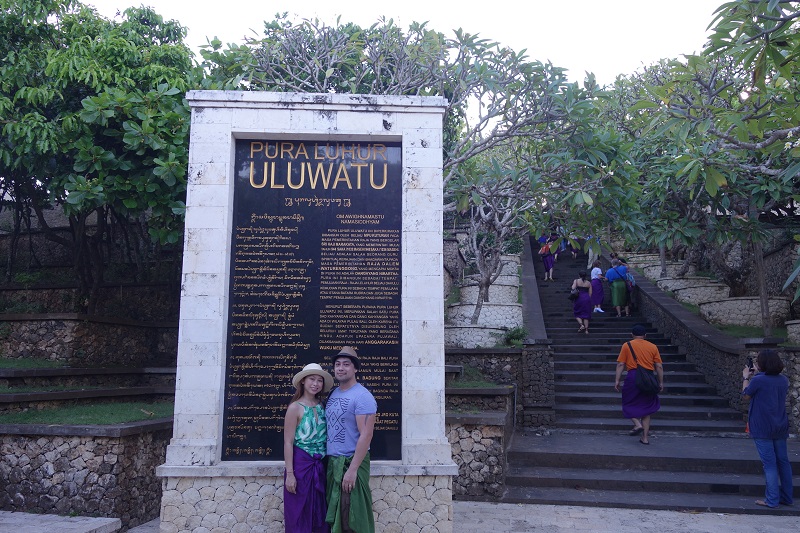
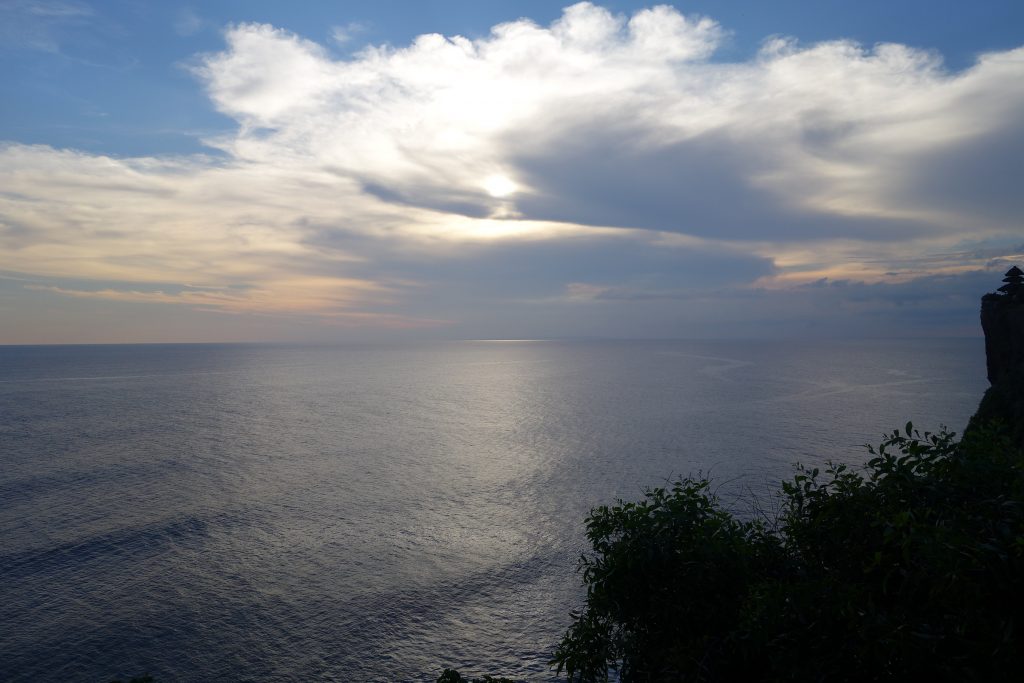
An amphitheater at the Uluwatu Temple is the main setting of the well-known Kecak Ramayana & Fire Dance (or “Kecak Dance” for short). The dance is not included in the temple entrance fee so to watch the dance, visitors need to pay a small fee of IDR 100,000 (USD 8/ AUD 11 / PHP 350). A flyer summarizing the five acts of the play is handed to visitors after they pay the entrance fee. Make sure you ask for the English version!
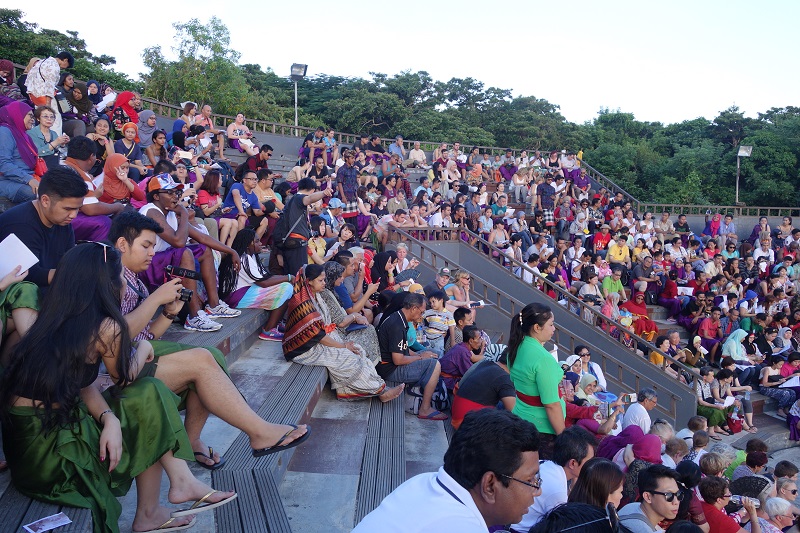
The show starts at 6:00 in the evening just before sunset but it’s best to come early to secure good seats. A spot in the middle section in the photo below is the most ideal area to watch the dance from because the dancers face this way for the most part of the performance. Aside from getting a good view of the dancers, those seated here also get an incredible view of the sunset. When we got there, however, it was already full so we stayed on the sides instead. We still had a good view, as you will see from the photos below, and we were closest to the sunset.
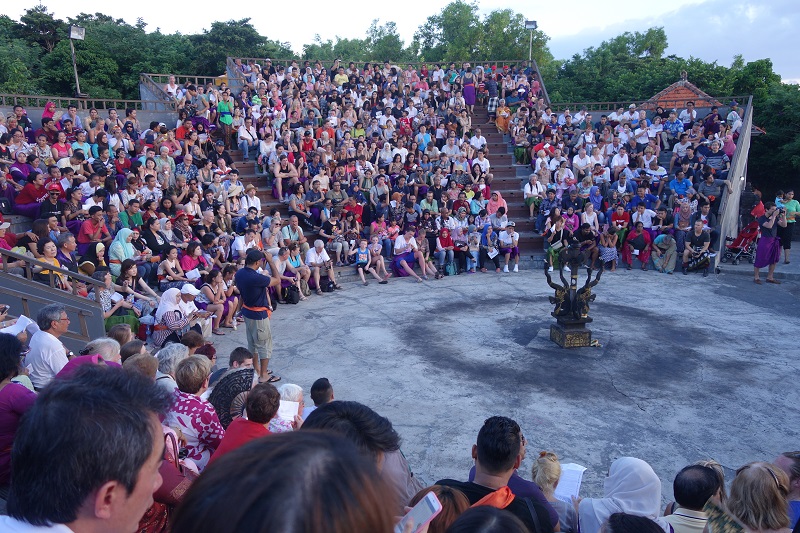
In the flyer that was given to us, it said:
“They say that every visitor [in] Bali should see at least one dance and if you plan to see only one, then this should be it. The combination of ancient ritual, dance, drama, and [the] sunset and cliff setting makes [the] Kecak Ramayana & Fire Dance one of the most spectacular dance performances imaginable. Accompanied by a choir of chanting and singing men, [this will] be a memory that will stay with you long after you leave the Island of the Gods.”
I couldn’t agree more! This performance is not to be missed!

Though the Kecak Dance is one of the most famous traditional Balinese dances, it was actually created by a German painter and musician named Walter Spies. The dance was originally a trance ritual accompanied by a male chorus but Spies, while living in Bali, adapted it as a drama based on the popular Hindu epic Ramayana.
About f50+ bare-chested men enter and tirelessly chant “cha-cha-cha-cha” and move their bodies rhythmically throughout the entire hour-long performance. The title “Kecak Dance” (pronounced as “ket-chak” or “ket-jack”) was an onomatopoeic title derived from the sounds uttered by these men.
Here is a little glimpse of the Kecak Fire Dance. This is at the beginning of the dance, so things aren’t too crazy and heightened yet during this time.
There are no musical instruments for this show. The only “musical instruments” you will find here are the natural beats coming from the indefatigable voices of the chanting men. I don’t know how they can do that for an hour (or more) without getting any breaks or intermissions while being exposed to heat… and they do it every single night! I was getting tired just by watching them! Kudos to these men!
The story of the Kecak dance is a long and tangled one, brought to life by a prince (Rama) whose wife is stolen from her, the prince’s kidnapped wife (Sita), the prince’s brother (Laksamana), an evil king (Rhawana), a red monkey king (Sugriwa), and a mischievous white monkey (Hanoman). As these characters play their respective roles, they stand in the center of the cantillating ensemble.
More than just the movements and the music, even the characters’ costumes and makeup are very elaborately done. How they are able to still move gracefully and precisely underneath all that material and maquillage is quite amazing!
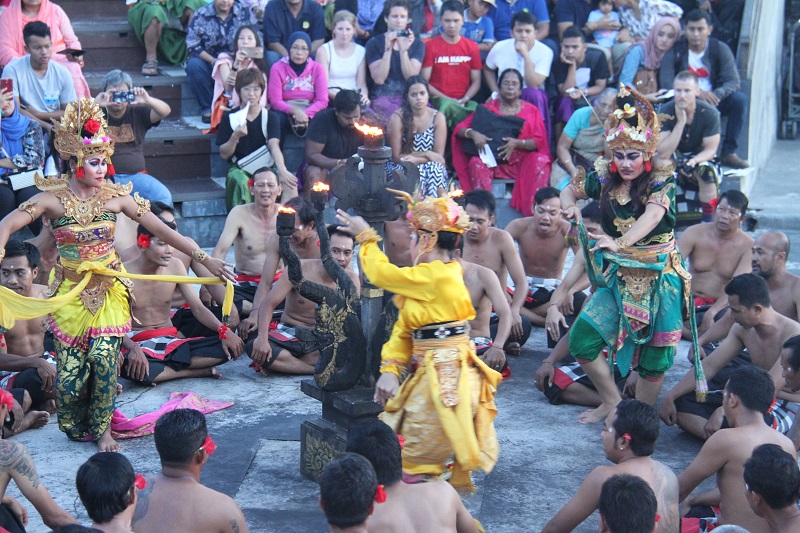
While being completely immersed in the performance, I lost track of time until I noticed the skies changing its color. The beautiful transitioning of the clouds from blue to a mix of cotton candy colors made the entire performance and the gorgeous setting even more arresting.
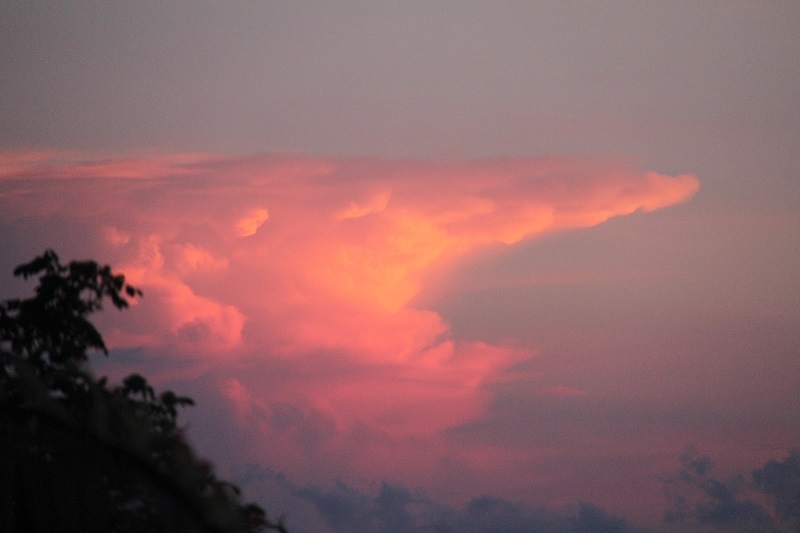
Adding up to the change of light, the drama intensifies even more in the scenes after the appearance of the white monkey. To lighten the mood a little, in the middle of the seriousness of the scenes, the white monkey provides comic relief by doing the unexpected: climbing up the steps, joining the audience for selfies and quick pictures, and pretending to be a real monkey by doing what Balinese monkeys do best: stealing anything they get their hands on, whether that’s someone’s sunnies or a bottle of water.
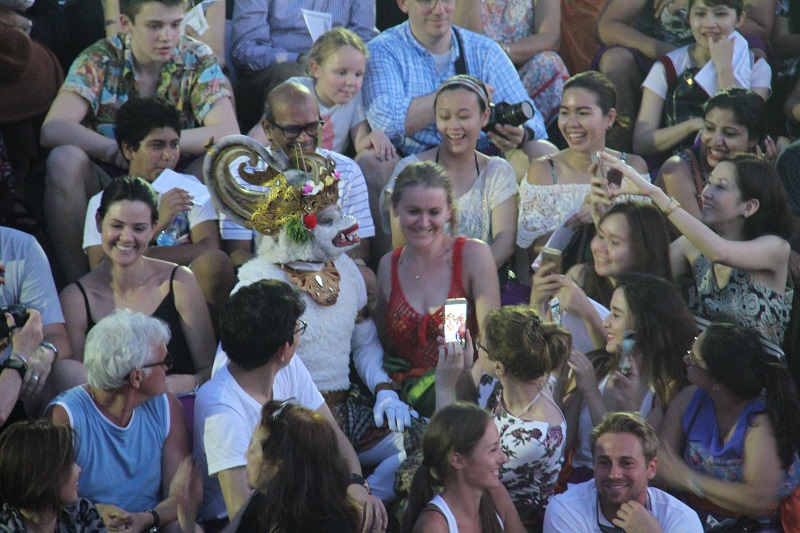
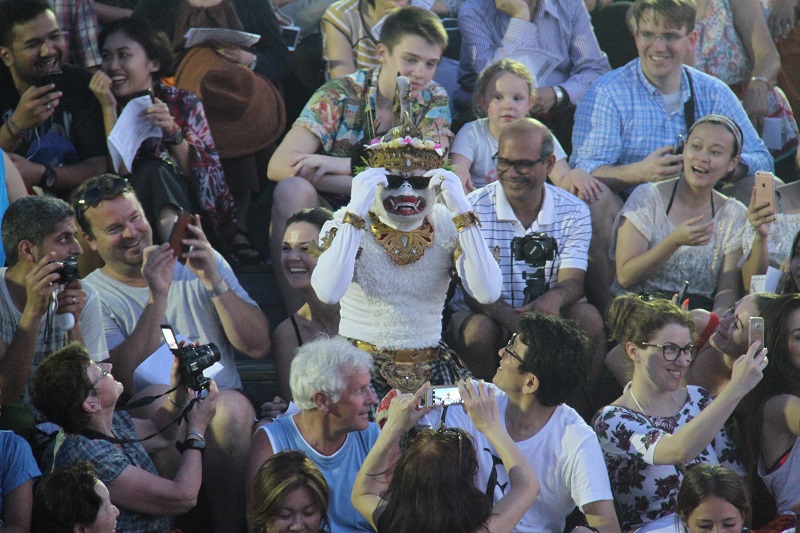
After all that monkeying around, the white monkey is caught by giants who attempt to burn him to death. With a ring of glowing red-orange flames blazing at the center of the stage, with embers flying around, while the sun dramatically sets in the horizon, the heat — from both the fire and the climax of the story — rises even further.
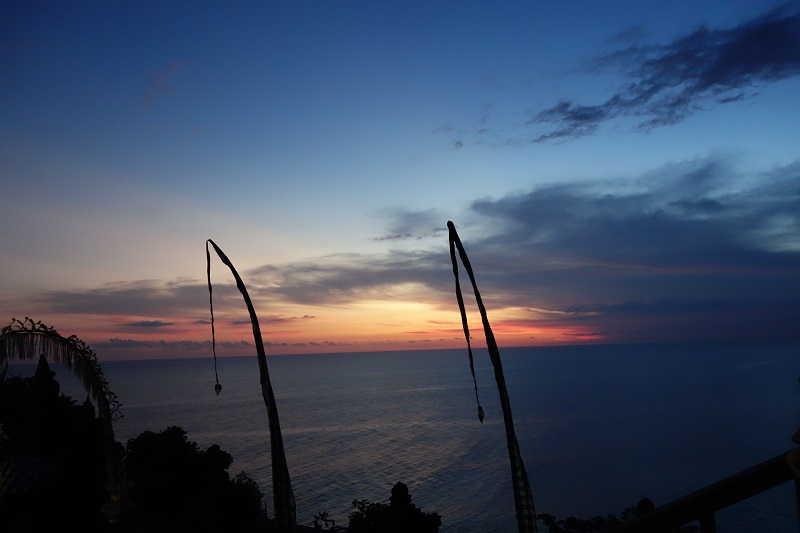
At the end of the Kecak Dance, visitors are given the chance to take photos with the cast members. Of course, you’d have to wrestle your way into throngs of people for a photo, but if you could get even just one photo with any of the characters, that’s good enough. Mike and I really wanted a photo with the white monkey but because he was the most popular and most well-loved character, there was an awfully long line of people wanting a monkey selfie, so we looked for other characters to have a photo with.
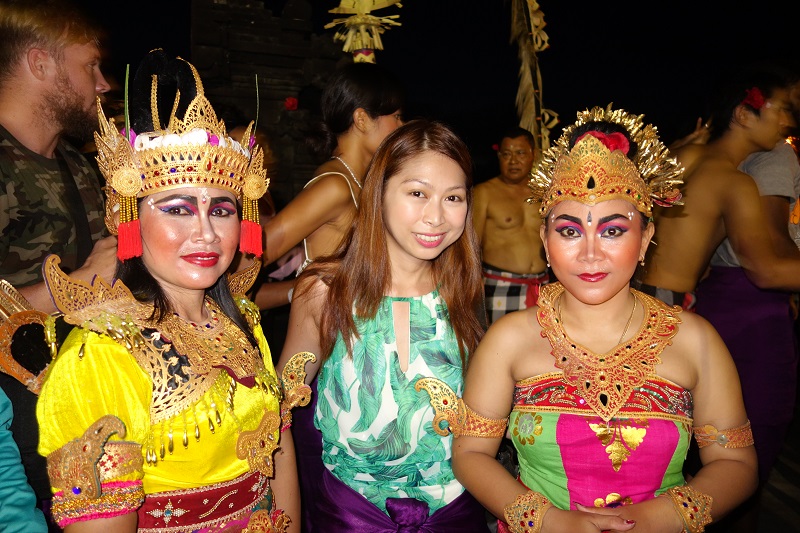
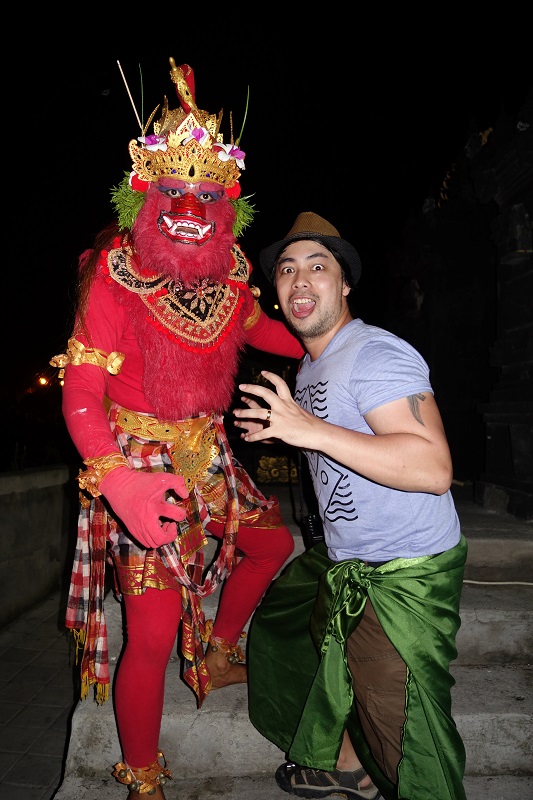
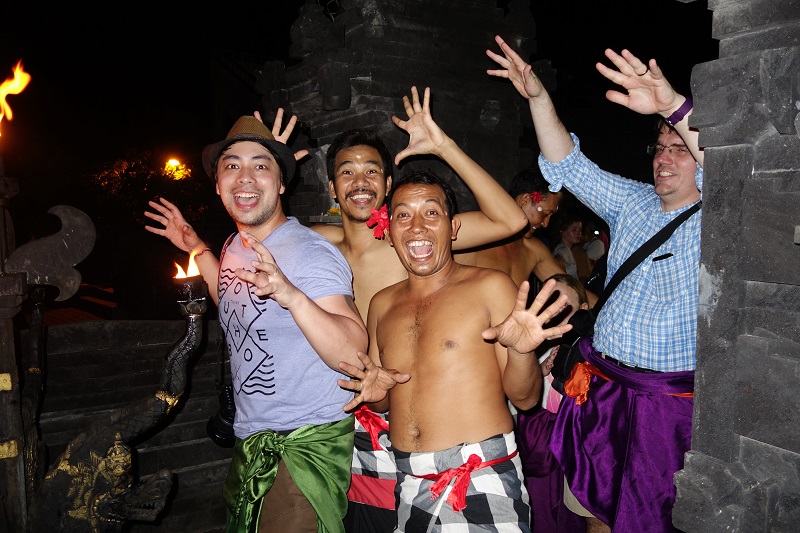
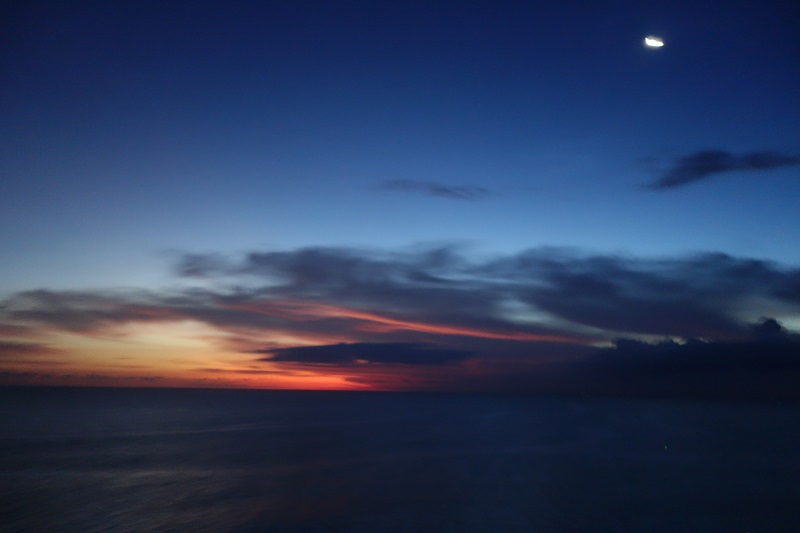
No question, Uluwatu Temple was one of our favorite temples in Bali! It was completely out of this world and I dream of coming back here!
Uluwatu Temple
Address: Jalan Raya, Uluwatu, Pecatu Village, Badung Regency, Indonesia
Opening Hours: 9:00 AM – 6:00 PM
Admission: IDR 30,000 (Adults) / IDR 15,000 (Children)
Entrance Fee for Kecak Dance: IDR 100,000
Kecak Dance Show Time: 6:00 PM nightly
How to Get There: Rent a private car with driver / guide. I recommend Galih Bali Tour.
♥ ♥ ♥ ♥ ♥ ♥ ♥
For all stories related to our Bali honeymoon trip, visit the link below:
#PuffAndFluffBalimoon

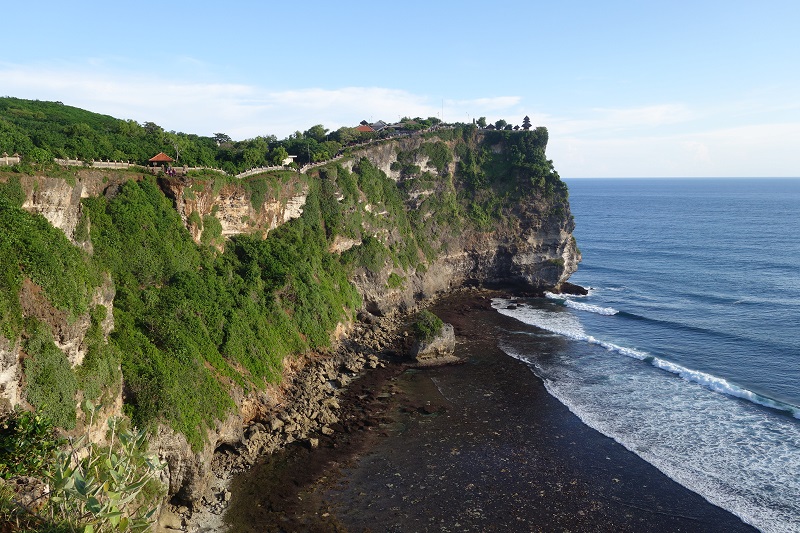
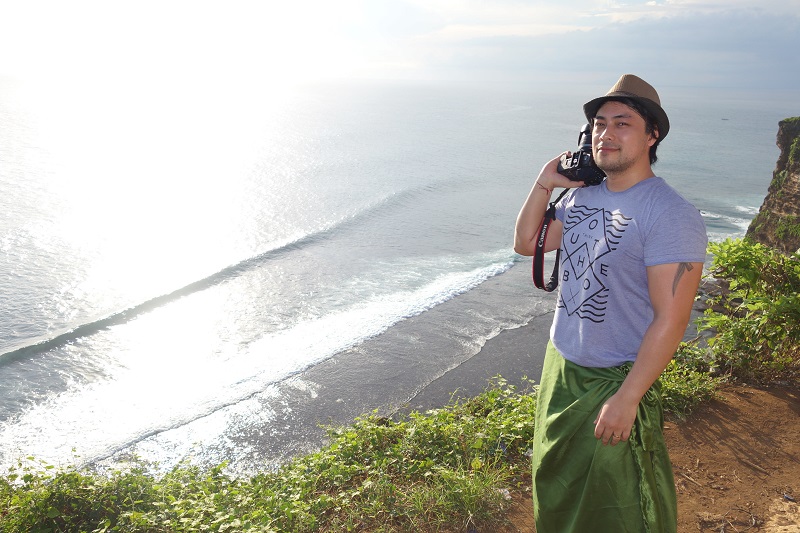
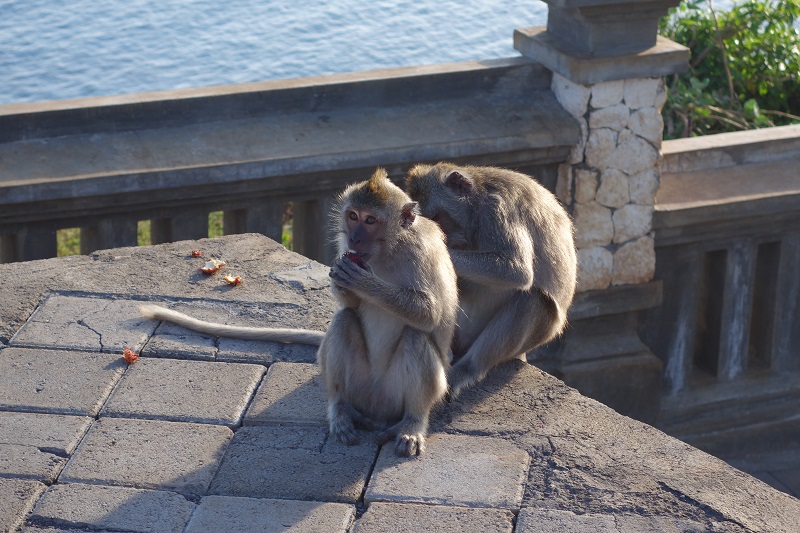
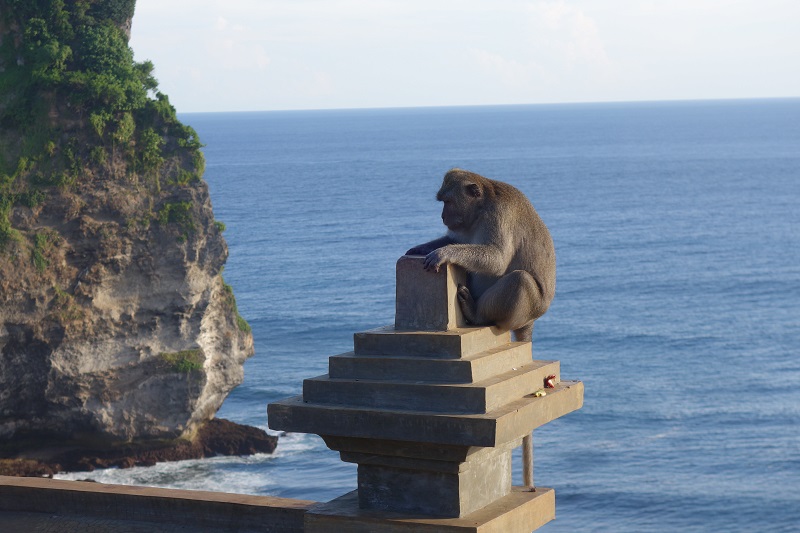
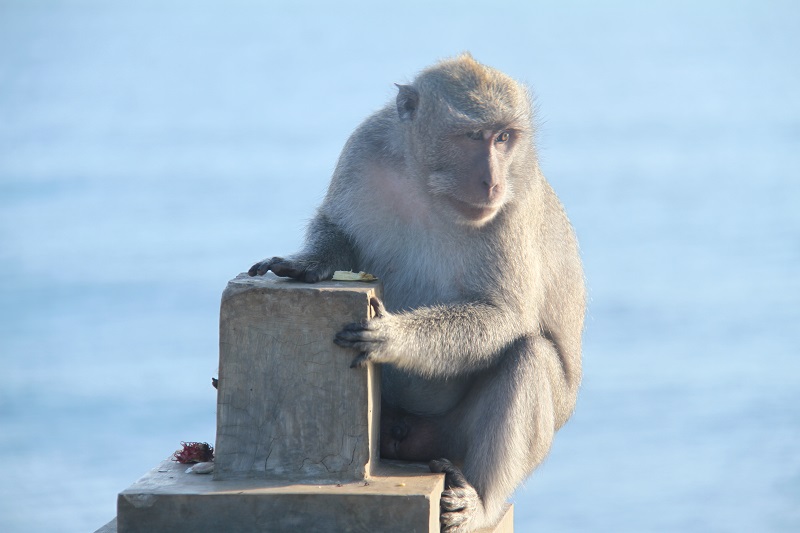
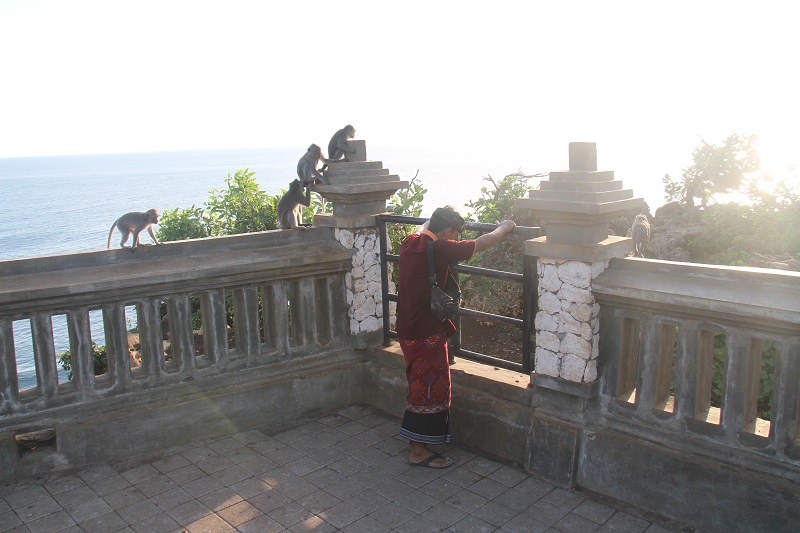
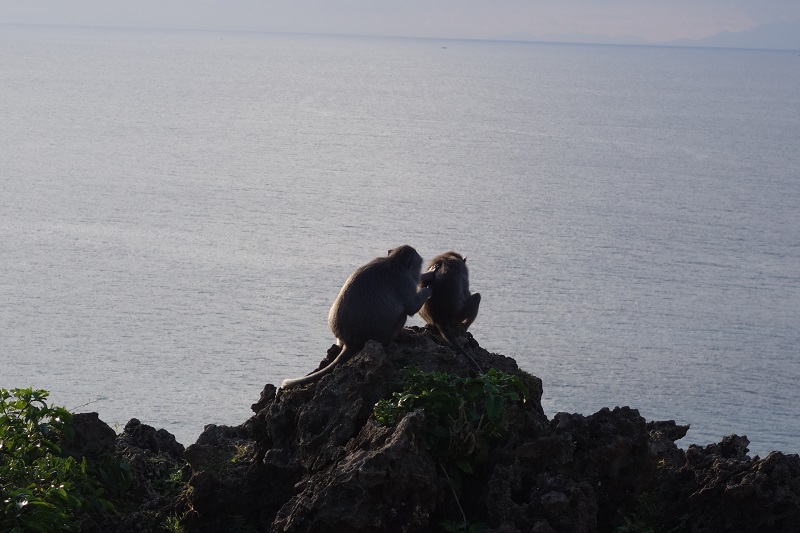
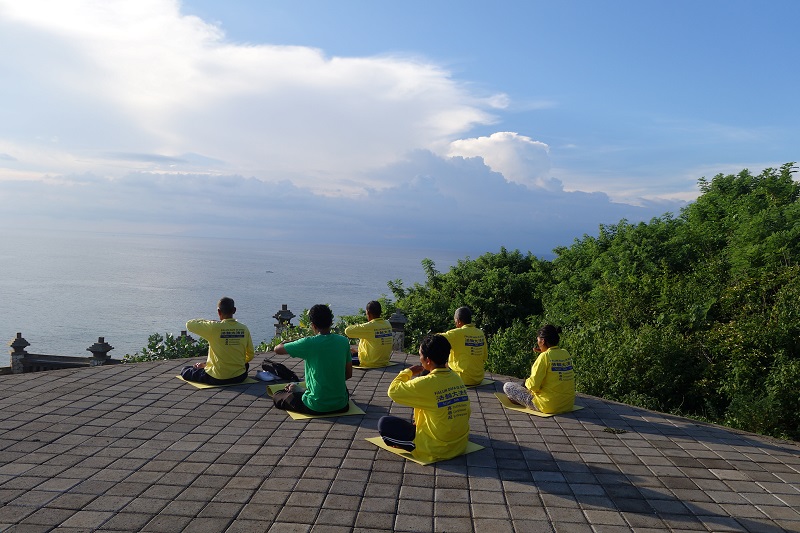
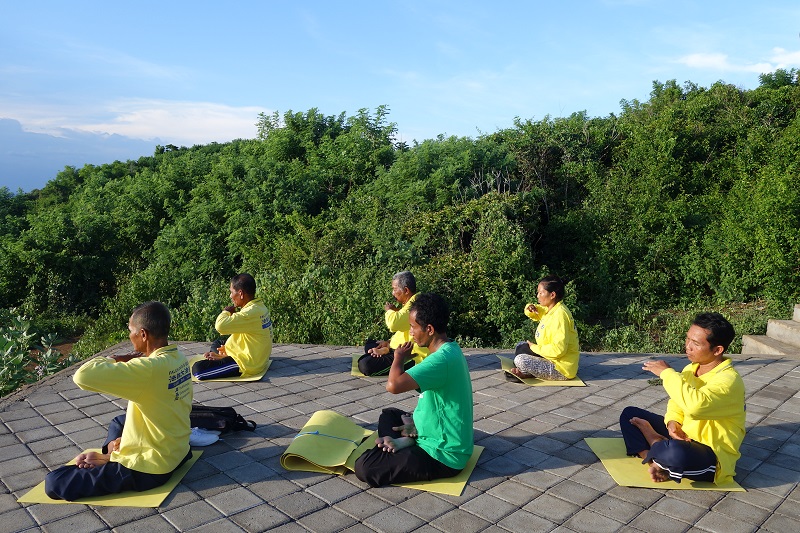
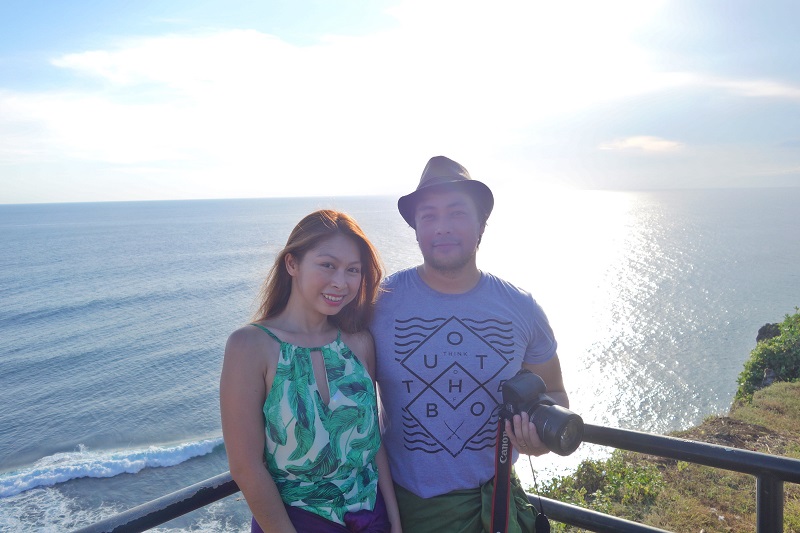
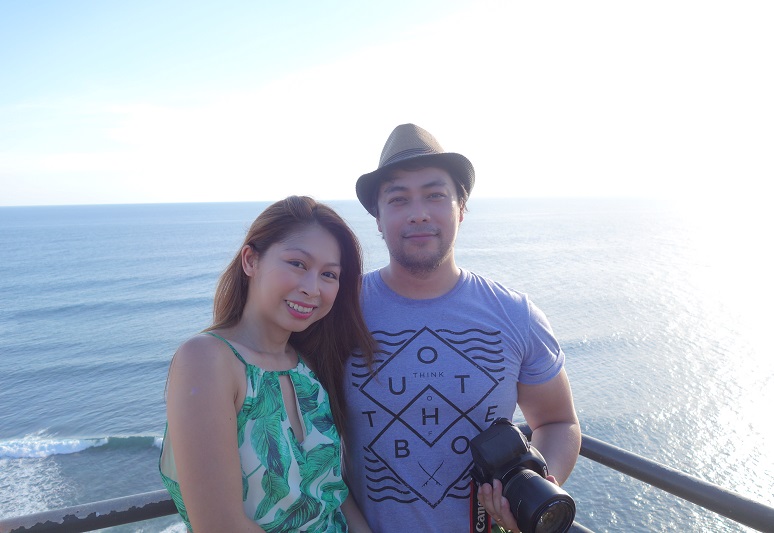

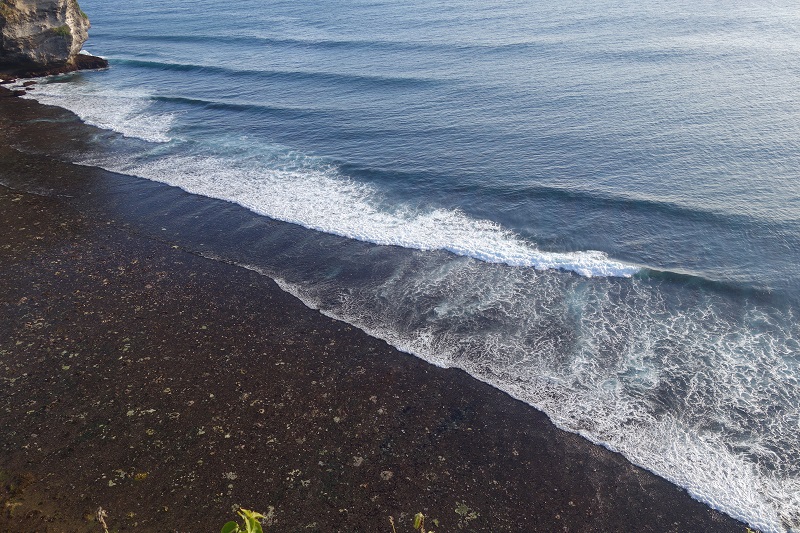
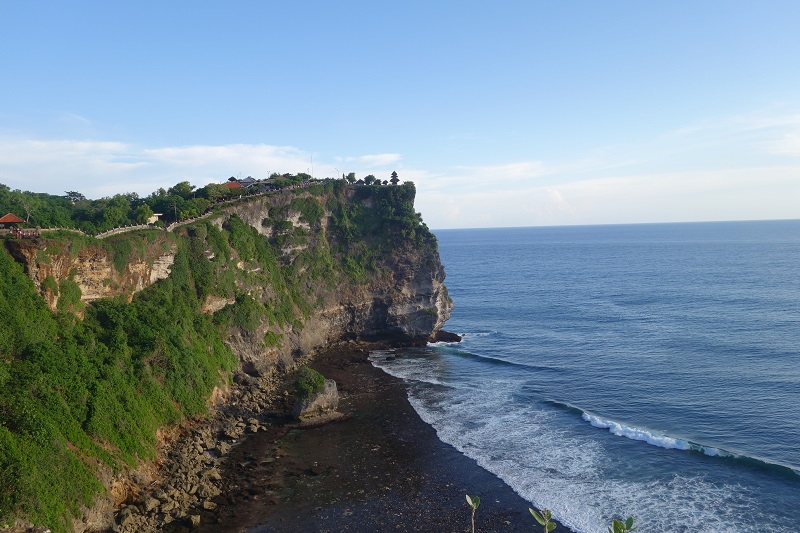
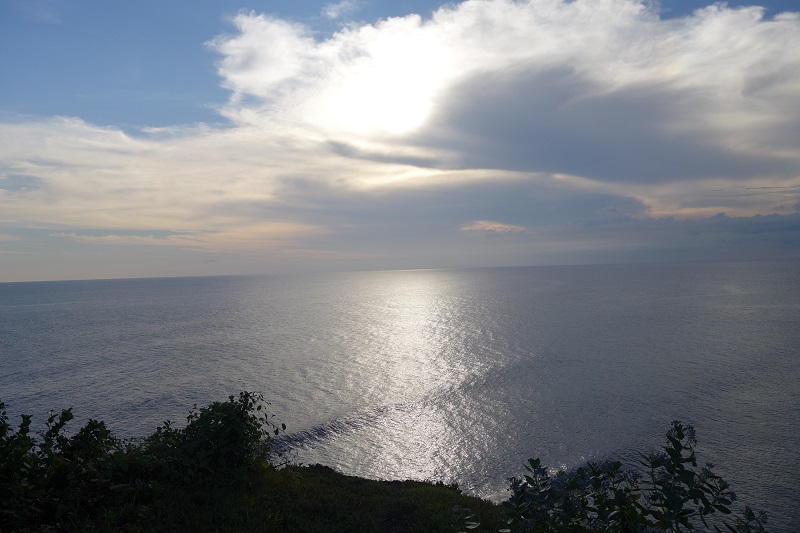
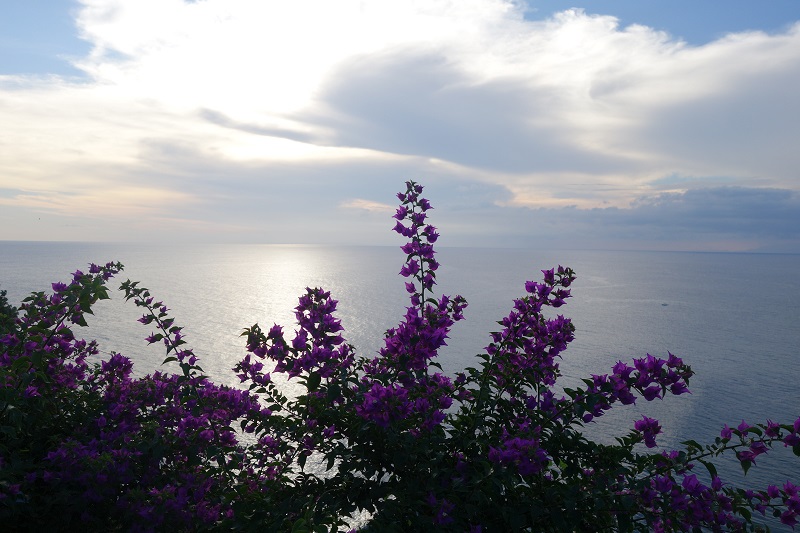
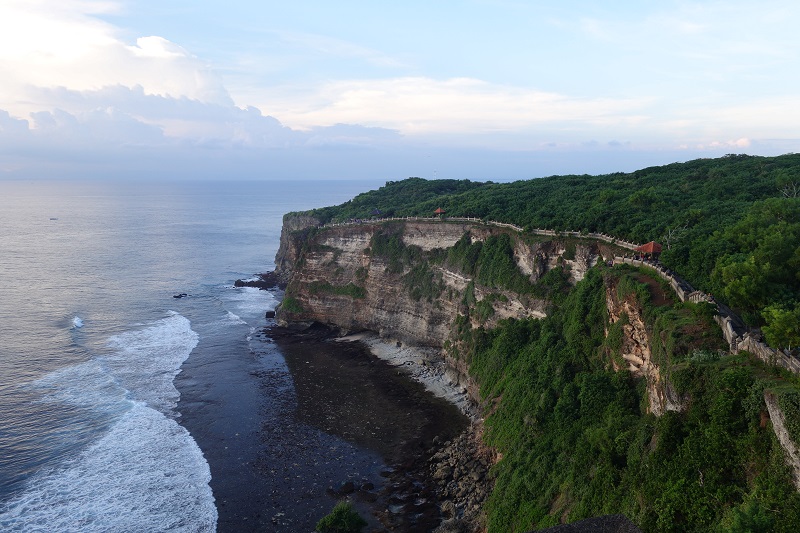
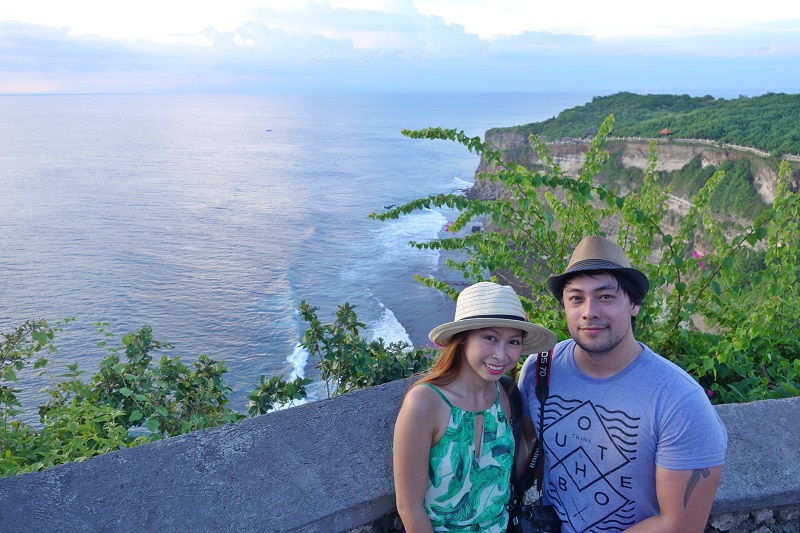
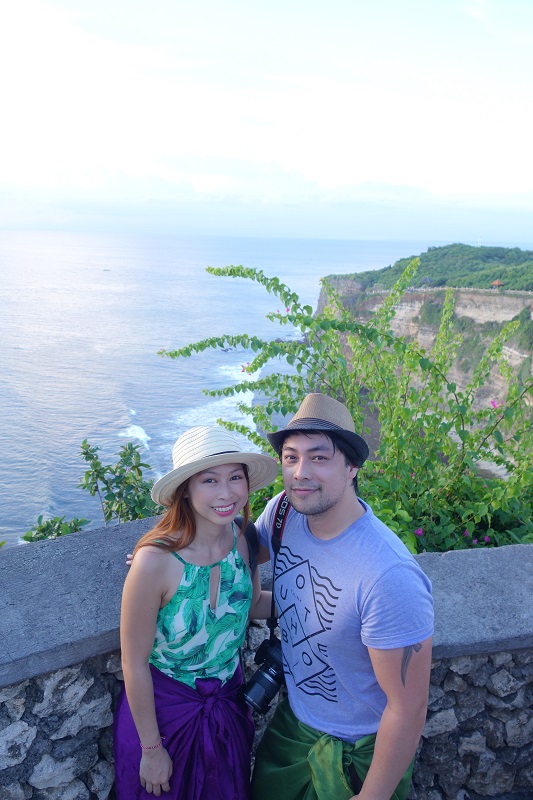
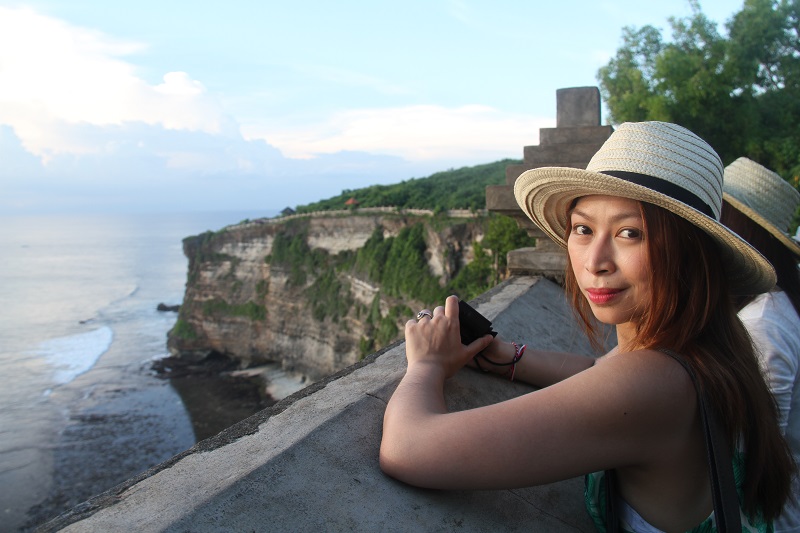
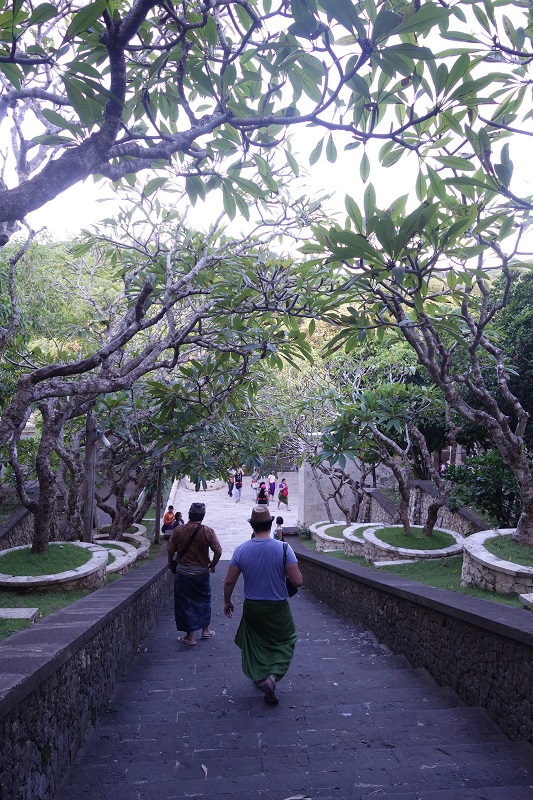
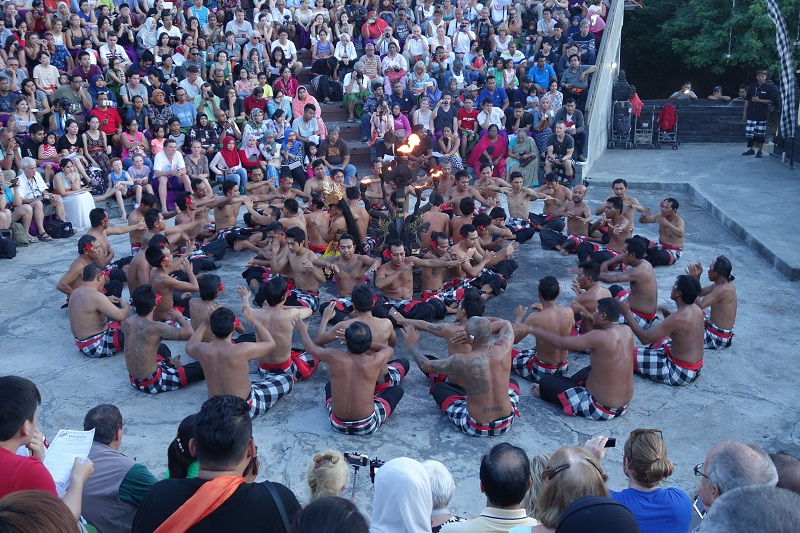
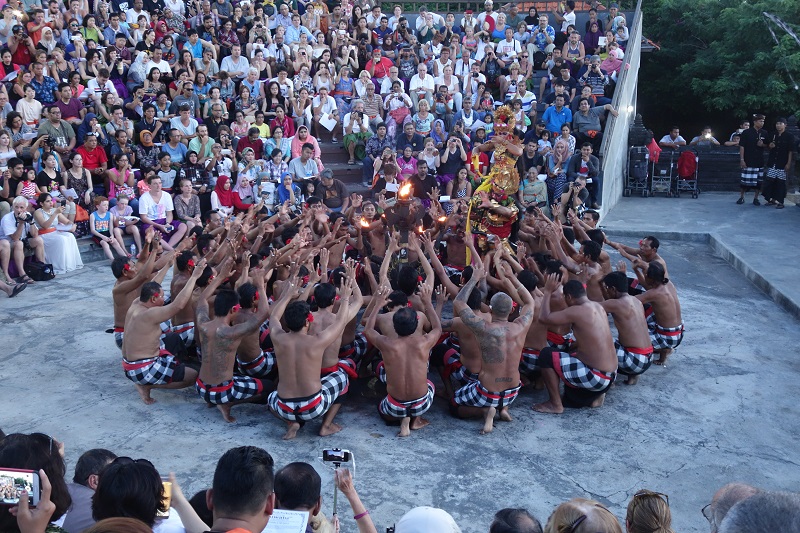
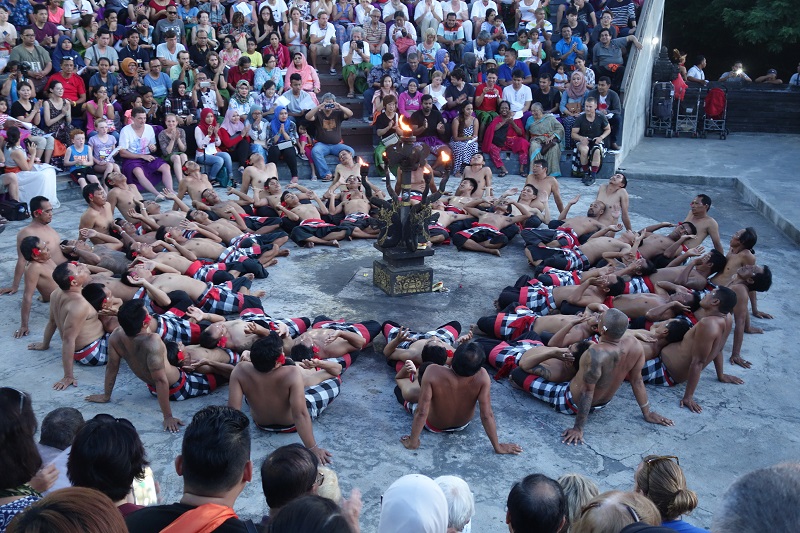
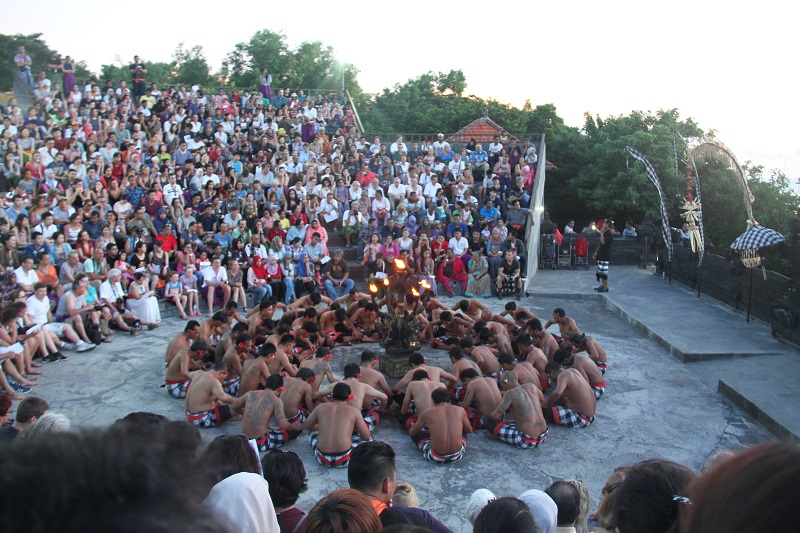
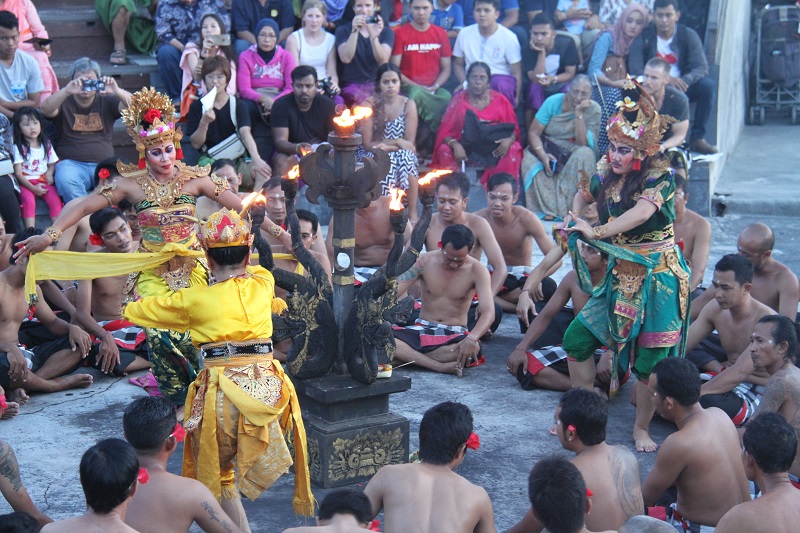
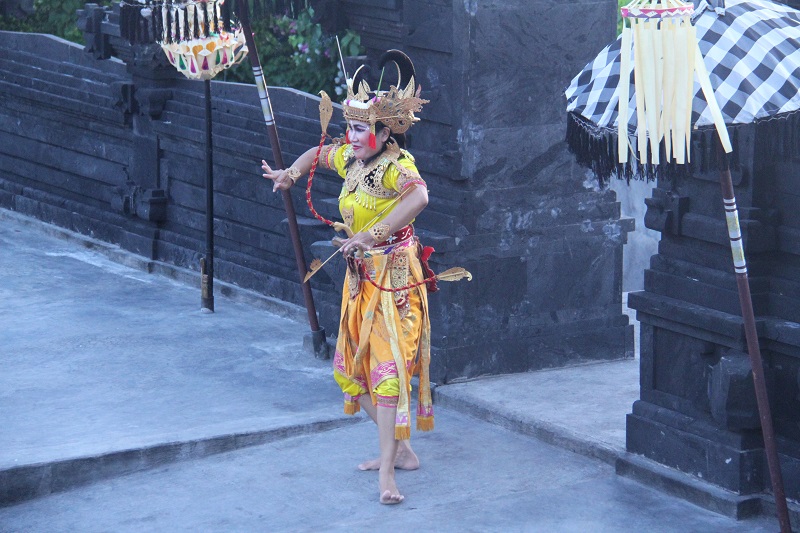
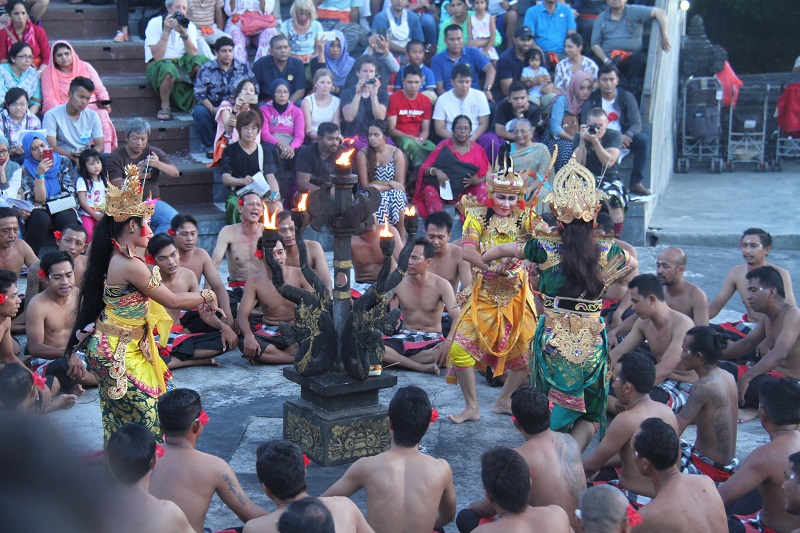
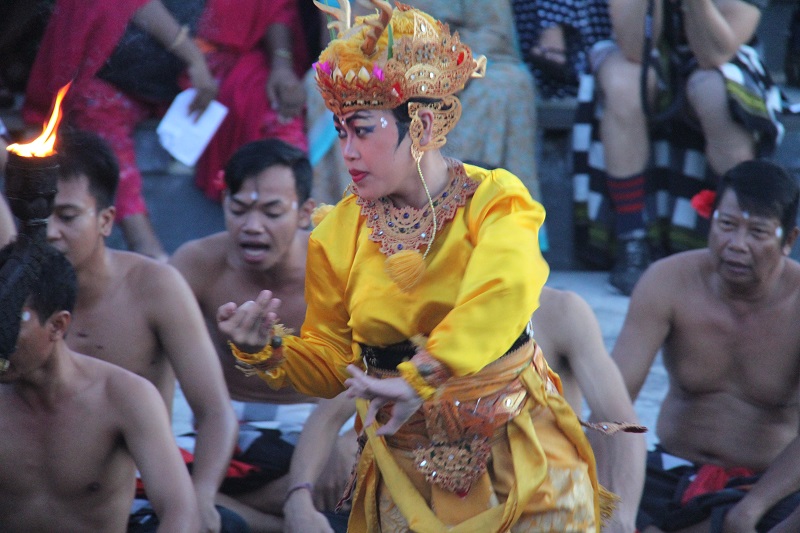
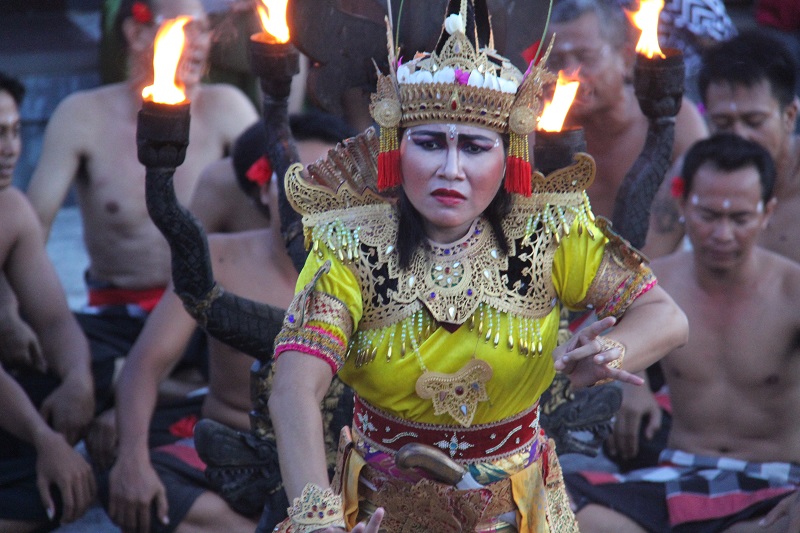
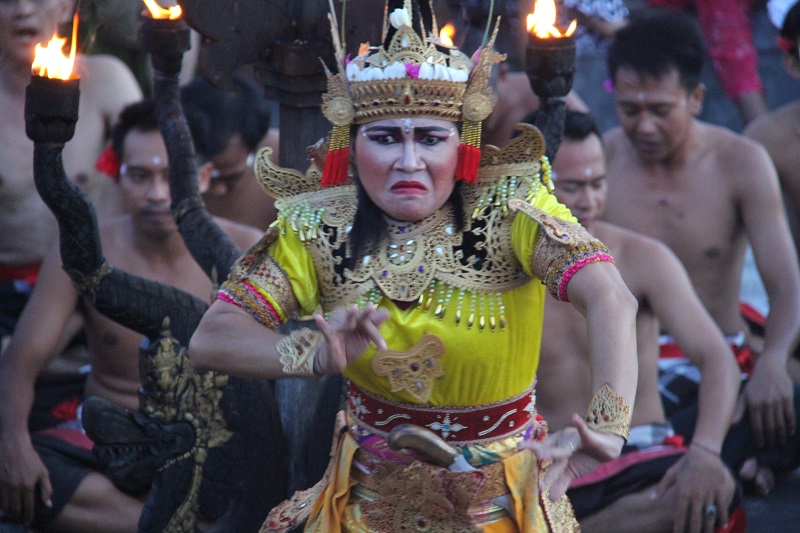
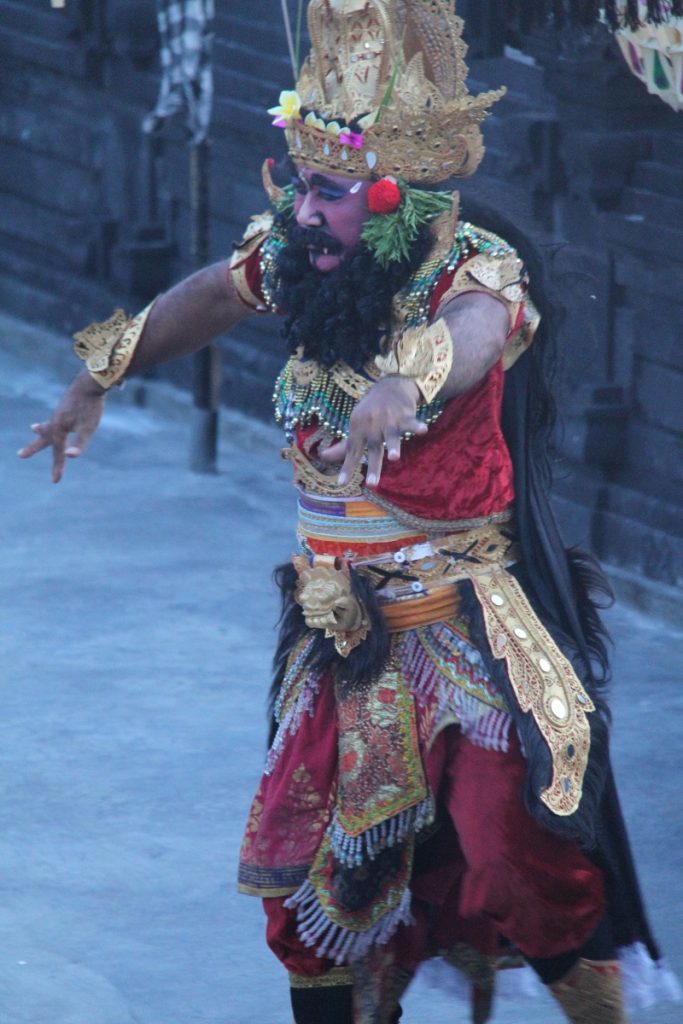
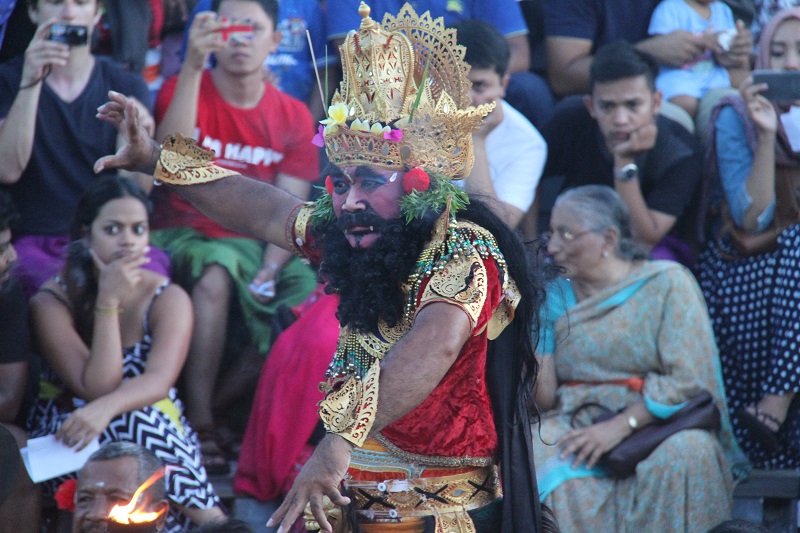
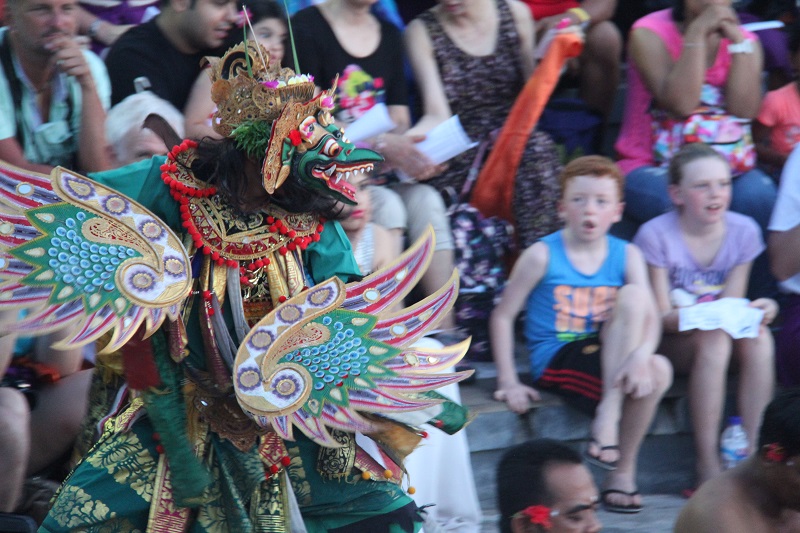
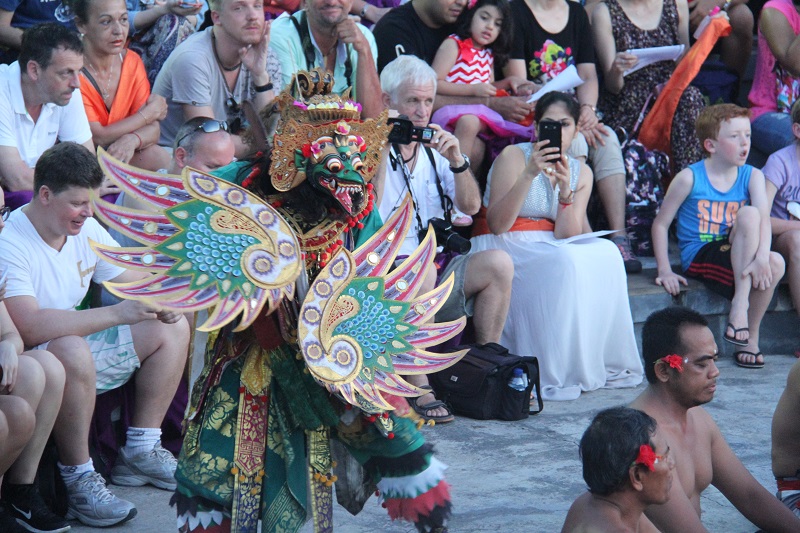
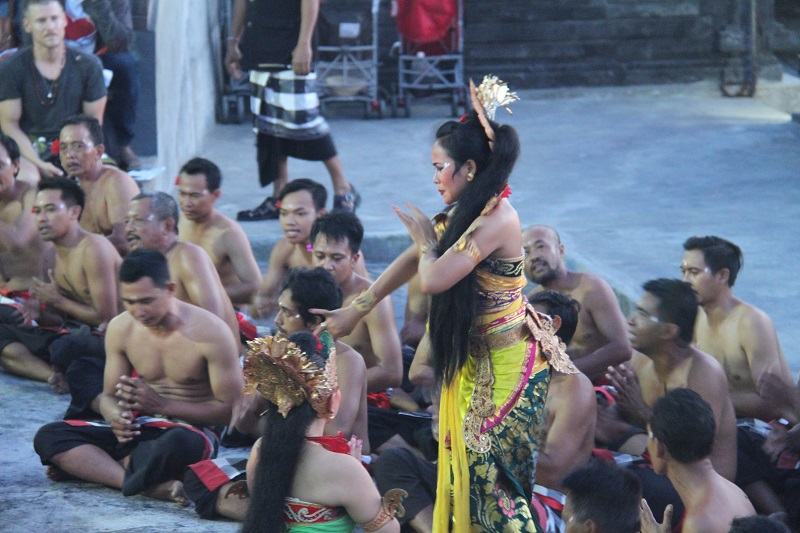
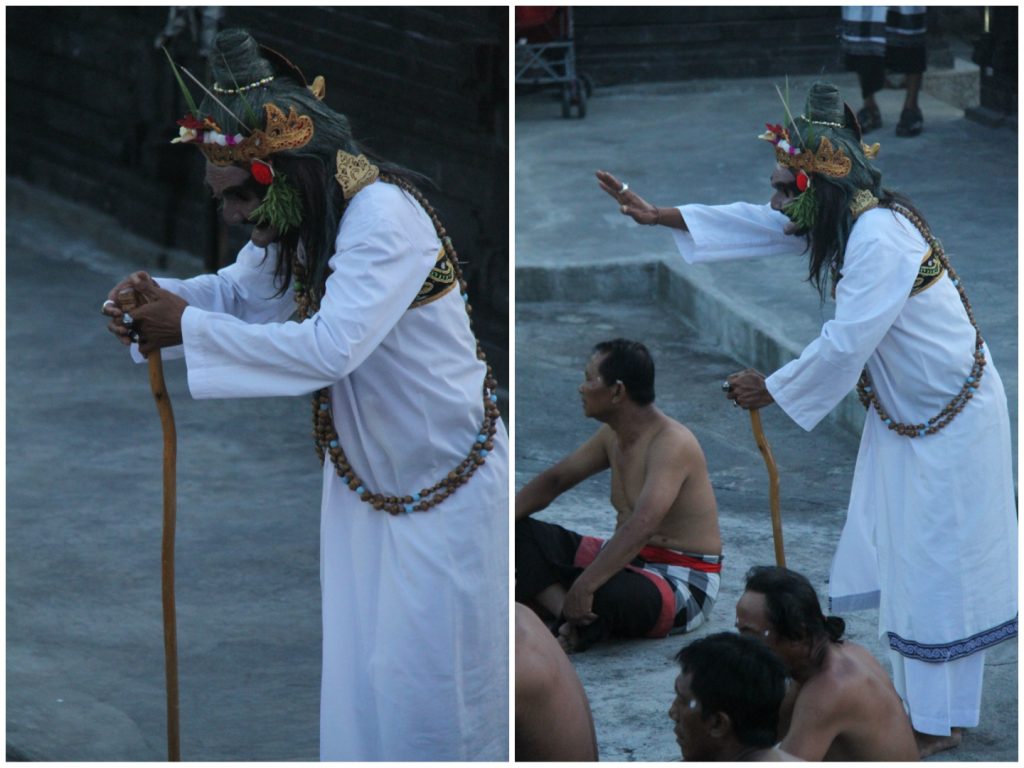
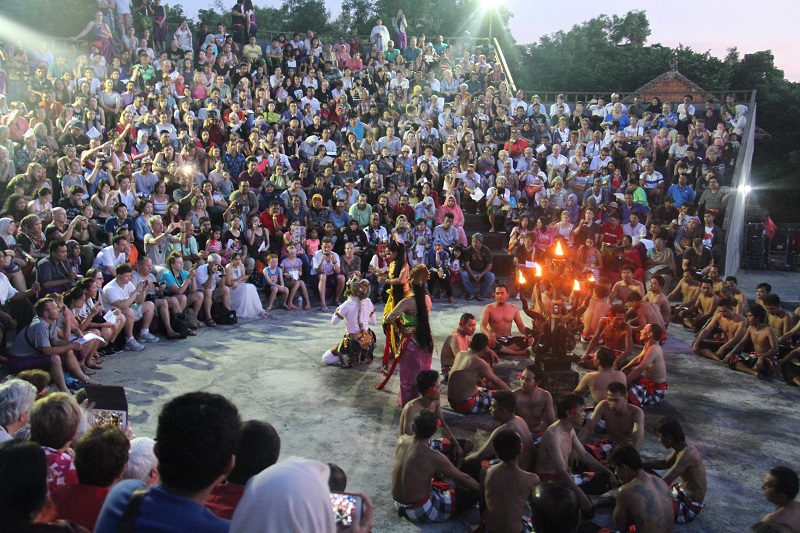
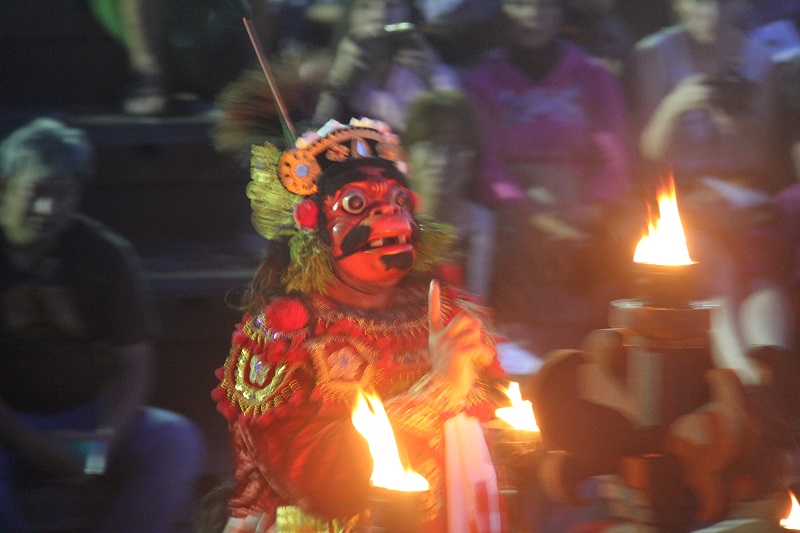
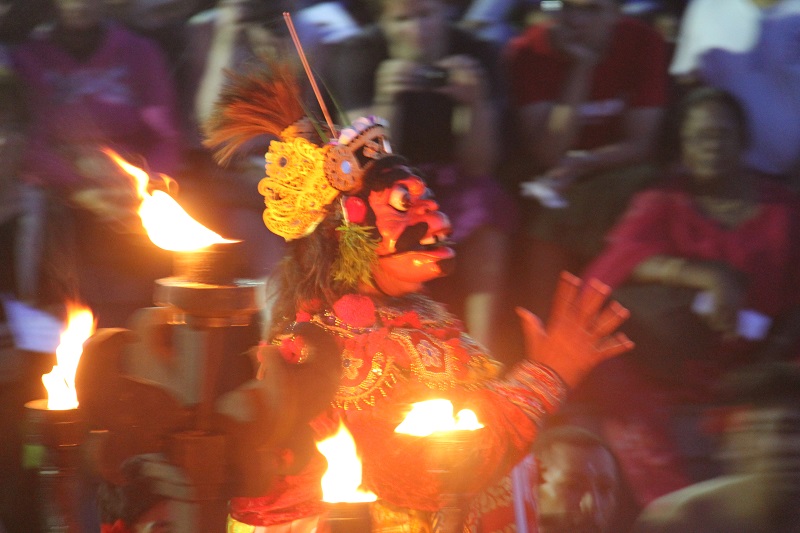
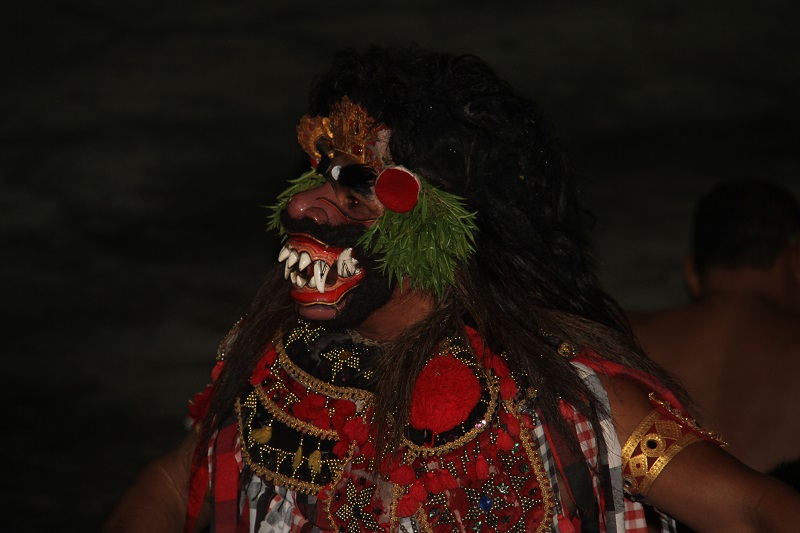
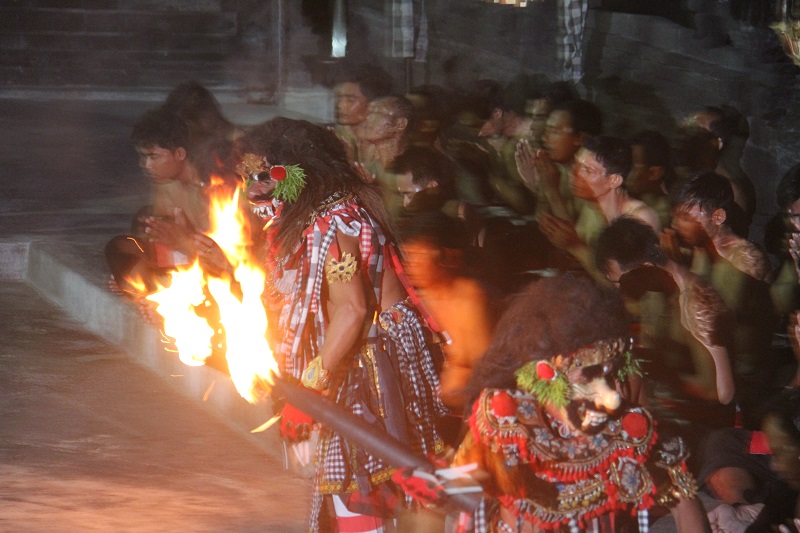

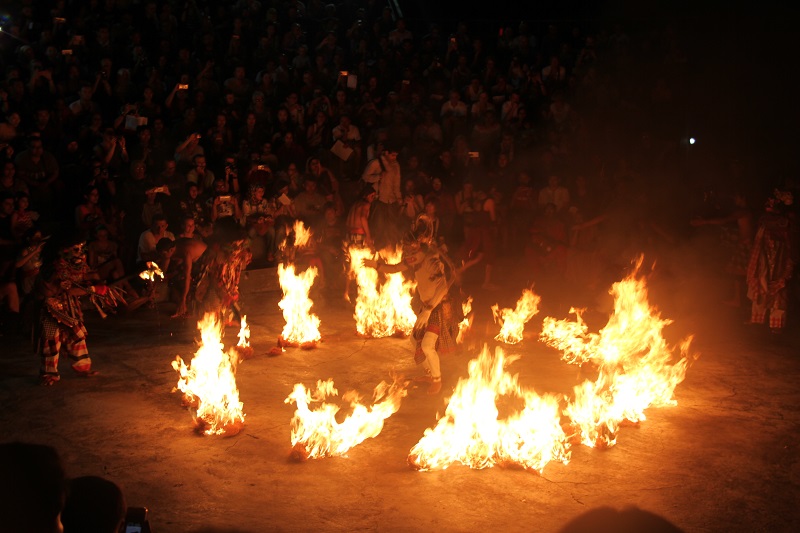
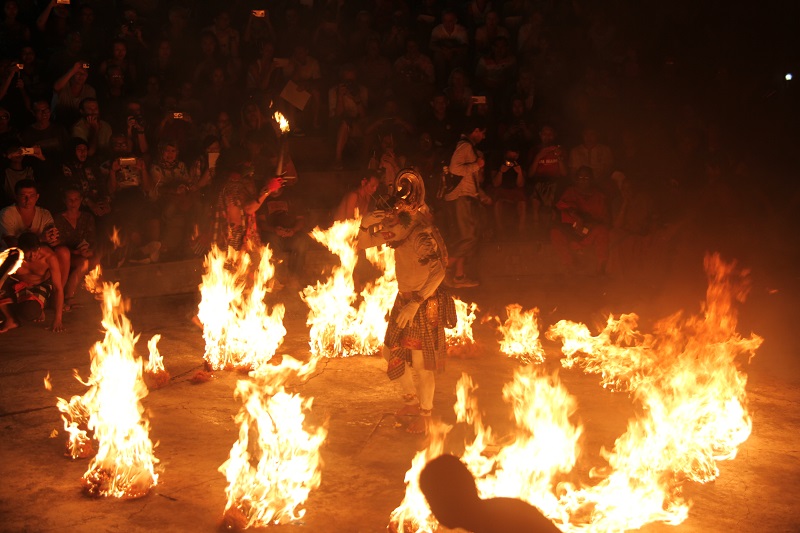
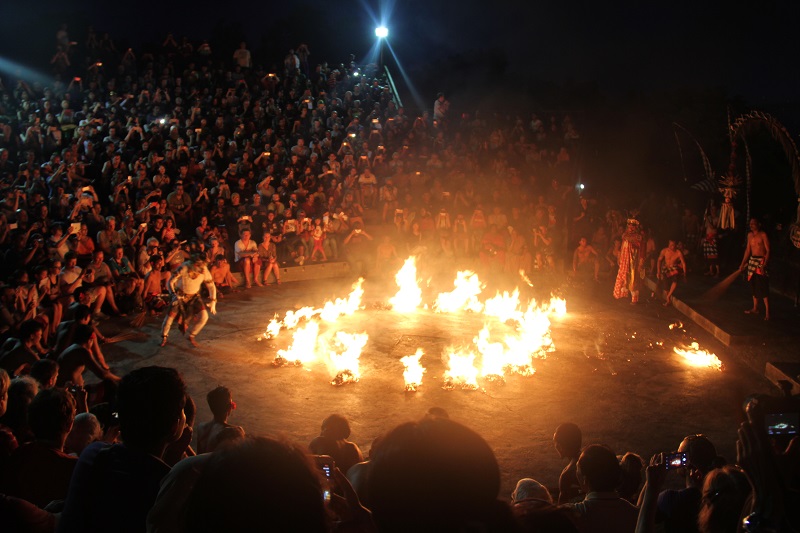
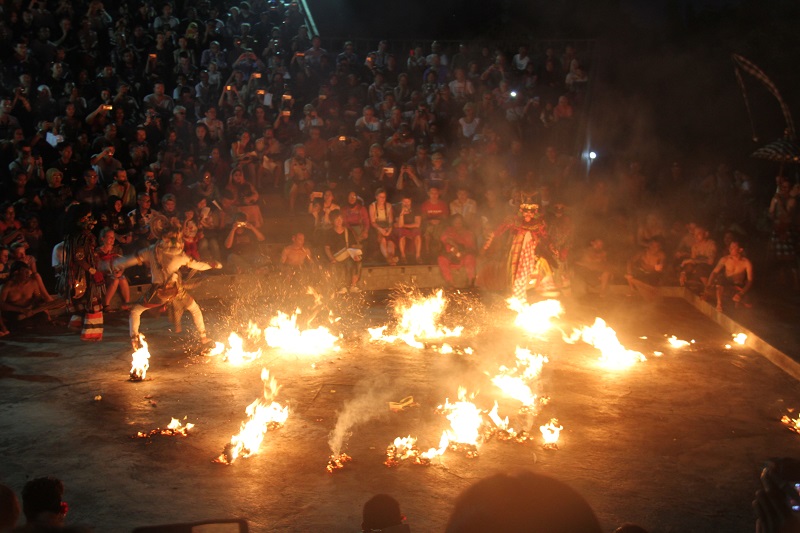
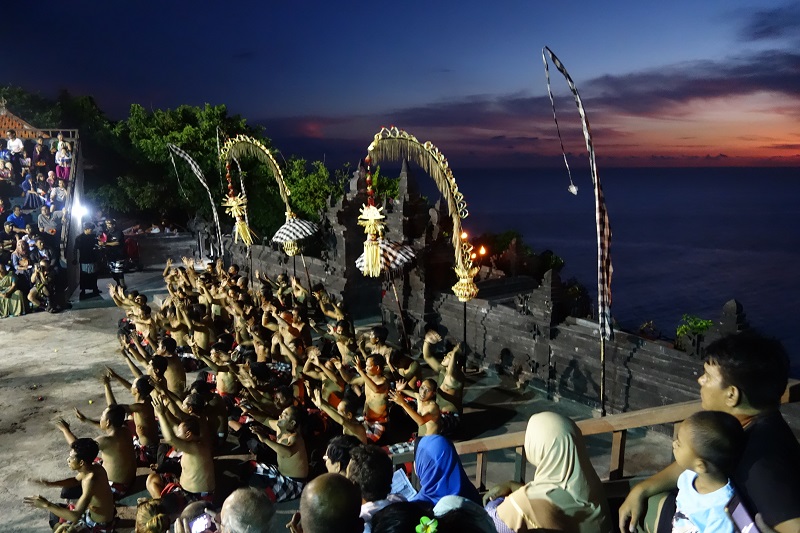
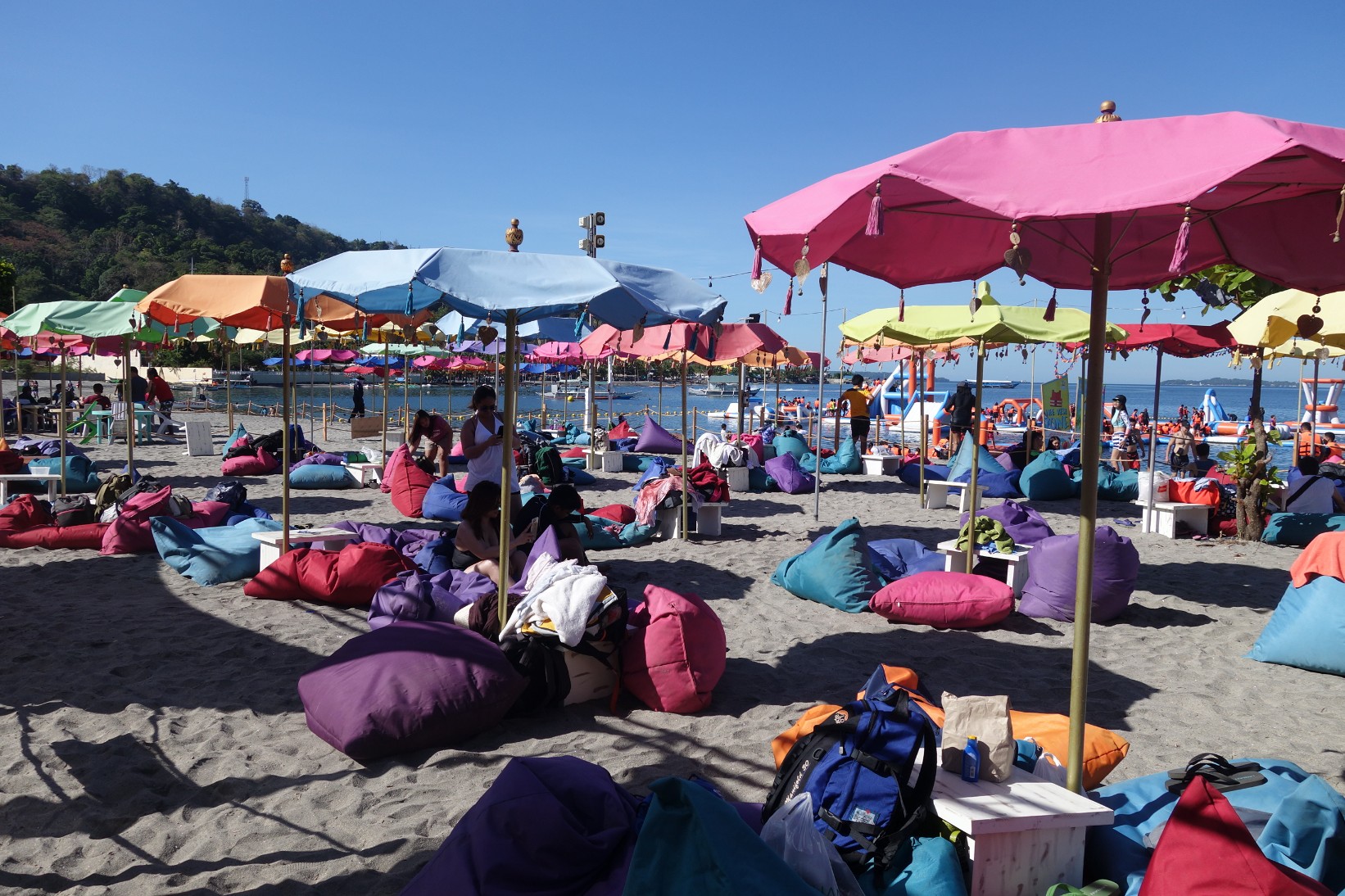

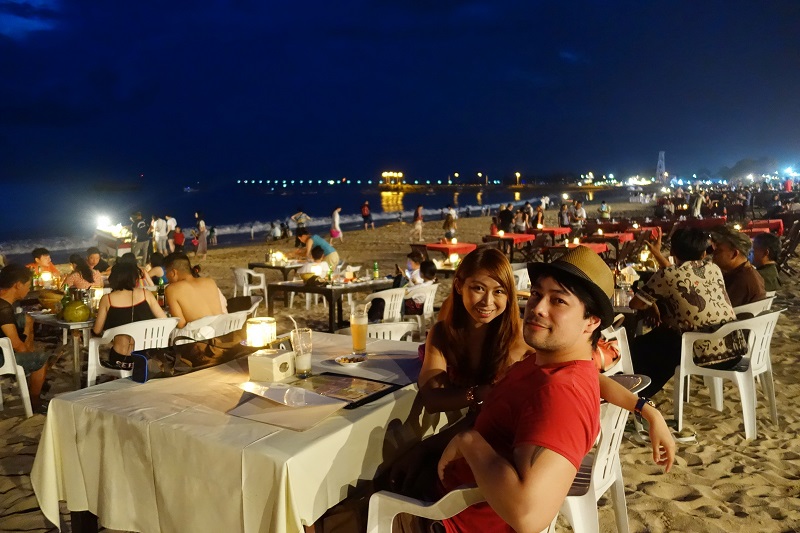
Oh my goodness what a stunning place! I definitely have to add it to my list of travel destinations! Thanks for sharing!
Kyla
Wanderlustkyla.com
Sounds like I would love this place! Looks amazing and I love thone cheeky little monkeys ☺ Ree Love30
OMG, I love this post! Your photos are absolutely stunning and this place too! :O
http://www.inspo-book.blogspot.com
Oh, wow! It truly looks like an amazing place! I enjoyed the pictures (monkeys are my favourite), and the performance was great too, I think (I’m a folklore dancer myself).
All I can say is WOW. That looks absolutely WOW.
~ Jasmin N
Little Things With Jassy
Bloglovin’
Isn’t it incredible? I was there last year and the Uluwatu Temple and Kecak dance were 2 of my favorite parts of the trip!
xo Bree
http://bree-west.com
Wow! I’ve heard kecak music before, but didn’t realize there’s a dance that goes along with it. Thanks for sharing. 🙂
I love this story! So wonderful
Maikelsworld.com recently posted…Spreegold – Friedrichshain Berlin
I’ve been here before so I can definitely relate to you with everything! I love everything here!
Oh my, I’m blown away by all the beauty. What a great time for you guys!
WOW! It’s my first time to see this place and this is gorgeous. I used to see all the similar places when I read Bali travel blog posts. The temple is so serene with it’s location. But the monkeys are scary good thing you didn’t lose a thing with them.